














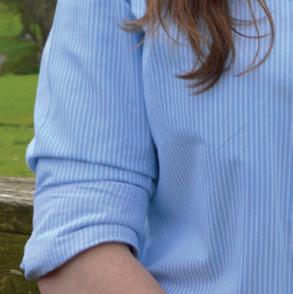













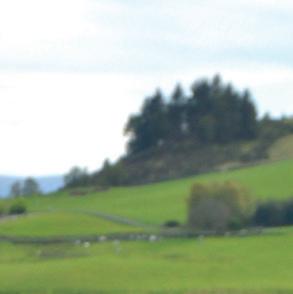


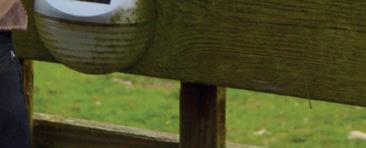







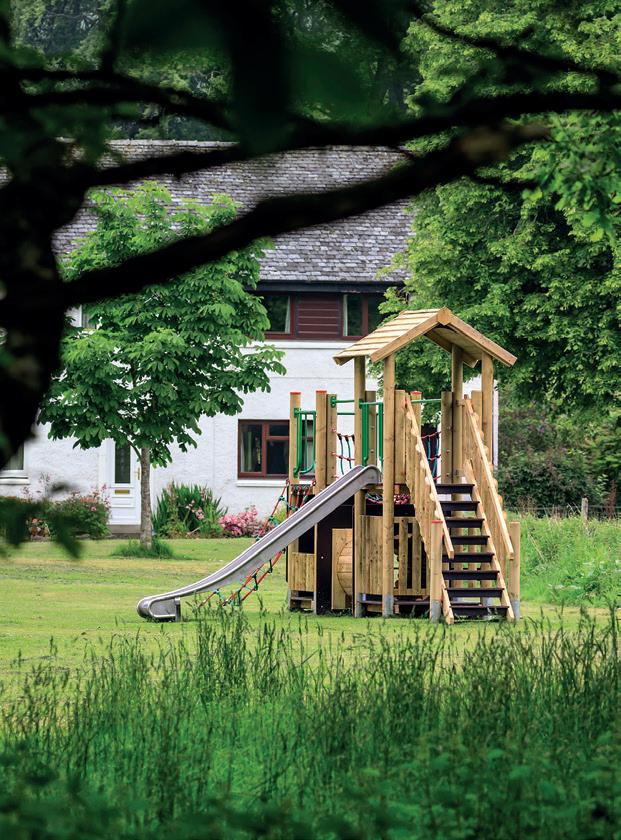
Enhance your destination with our quality, wooden outdoor play equipment.
Increase footfall and fun all year round! Perfect for farm shops, holiday lets and glamping sites.
why choose us?
Full design and planning service
Wide range of products to suit all businesses
European Safety Standard EN 1176 compliant
Post-installation safety inspection available 25+ years play industry experience
NFU Scotland, Rural Centre, West Mains
Ingliston, Edinburgh EH28 8LT
NFU Scotland, Rural Centre, West Mains Ingliston, Edinburgh EH28 8LT

0131 472 4000


OW often do you see or learn about something and think ‘I’m up for
Tel: 0131 472 4000 www.nfus.org.uk nfuscotland @NFUStweets

www.nfus.org.uk nfuscotland @NFUStweets @nfuscotland
Editor Diana McGowan editor@nfus.org.uk
Design & Production
Editor Diana McGowan editor@nfus.org.uk
Mark Shreeve mark.shreeve@micropress.co.uk
Managing Editor
Hpositive thought/ silent commitment? Possibly too often or not at all.

Andrew Hirst andrew.hirst@micropress.co.uk
Craig Gibson
Advertising Sales
Design & Production
Ryan Swinney
Danny Lewis 01502 725862 danny.lewis@micropress.co.uk
Advertising Sales
Lawrence Kenny 01502 725860 lawrence.kenny@micropress.co.uk
Clare Stebbing clare@connect communications.co.uk
Tel: 0131 561 0024
Published on behalf of NFU Scotland by Connect Publications (Scotland) Ltd.
In this month’s magazine, our two features cover inspiring stories and highlight just how rewarding delivering on such thoughts can be both for the individual involved and others who may benefit along the way.
Diana McGowan
s I sit down to write my final Editor’s introduction for Scottish Farming Leader, I find myself reflecting on the incredible six-year journey I’ve had with NFU Scotland. It has been an absolute privilege to serve as Editor. During that time we’ve covered so many topical issues, industry challenges and highlighted some tremendous, innovative work. We’ve mentioned the weather many times and reported on elections and leadership changes (UK & Scottish Governments and as well as NFU Scotland ones), member events, numerous consultations and parliamentary Bills, Brexit transition, new funding framework, seasons, crisis, Ukraine war, trade deals and of course a world-wide pandemic.
Studio 2001, Mile End, 12 Seedhill Road, Paisley PA1 1JS
Published on behalf of NFU Scotland by COUNTRYWIDE PUBLICATIONS
Fountain Way, Reydon Business Park, Reydon, Suffolk IP18 6SZ 01502 725800
Printed by MICROPRESS PRINTERS LTD
Fountain Way, Reydon Business Park, Reydon, Suffolk IP18 6SZ 01502 725800

We’re only a few weeks away from the Royal Highland Show. Over the course of four days, thousands will flock to the show to compete, judge, exhibit, organise, educate and socialise. We’ll see the best of the best and relish the atmosphere. Among the highlights and away from the main show ring, this year will see the welcome return of the Golden Shears Sheep Shearing and Woolhandling World Championships. Taking place at the MacRobert Theatre, the 2023 Worlds will see more than 30 countries compete for the prestigious title and it promises to be an action packed showcase of the art, skill and techniques required to be a world champion.
This issue has a special energy to it, as we turn our focus toward the future and celebrate the enthusiasm of young farmers and industry ambassadors. Their commitment to championing this industry and encouraging others to join our ranks is nothing short of inspiring. The launch earlier this year of our new NFUS SAYFC membership underscores the importance of fostering the next generation, ensuring that those who aspire to farm have the support, networks, and opportunities they need to thrive. These young leaders are proving that agriculture isn’t just a career, it’s a way of life, full of challenges, innovation and rewards. Their passion and drive remind us all why farming is such a vital part of Scotland’s fabric.
Perhaps a less well known event taking place at this year’s Highland is the final qualifying round of the 2023 Britain’s Fittest Farmer competition. Taking part in this event for the first time is Kyla Graham from Kirkcudbrightshire. Kyla first spotted the event at the Show last year and while watching it thought ‘I’m up for that’. Kyla knew however she couldn’t just enter there and then. Like any competition, she understood you need to be ready for it and without knowing if she would even enjoy it, she set her mind to it to finding out if she would. Kyla shares her journey from that moment to the present and highlights how she’s benefited already in so many ways both mentally and physically, and explains about the positive impact her preparation has had on her working life.
One of the greatest joys of editing Scottish Farming Leader has been the willingness of so many of you to share your experiences - both successes and struggles - with fellow members through the publication’s pages. Your openness and honesty have helped shape conversations, provide support and strengthen our industry in ways that words alone cannot fully express. And, of course, I have never struggled to find enthusiastic volunteers for a photo or two at NFU Scotland events to record proceedings! Your willingness to step forward, whether to celebrate achievements or highlight the real challenges faced in farming, has made this publication a true reflection of Scotland’s agricultural heart.
The other feature looks at how a casual conversation during a Christmas lunch turned into the most rewarding and humbling experience for Next Generation Chair, Matthew Steel, one of the many volunteers who have recently delivered much needed 4x4 vehicles to Ukraine to support the war effort. Matthew explains his contribution to the ‘Pickups for Peace’ campaign and reflects on how the unexpected reception received from the Ukrainians has impacted him and those who were involved.
As I bid farewell to NFU Scotland to take up a Director’s position with Edinburgh University Students’ Association, I want to extend my heartfelt thanks to all of you - our members, stakeholders and supporters. Your engagement and very positive feedback have made this role so rewarding. I have no doubt that your innovation and resilience will continue to positively shape Scotland’s farming future. The industry thrives because of people like you -people who embrace change, rise to challenges and champion farming, crofting and rural life with powerful pride.
Finally, as we head towards the longest day, with the hope of some warmer weather on the horizon, I hope you’re remembering to dress for the weather and wear protective sunscreen and hat when you’re out and about. The strength of the sun even on a dull day can prove harmful if exposed without protection. If you need a new baseball cap, visit the NFU Scotland website and purchase one from the branded merchandise in the Members’ Benefits section.
So, keep up the fantastic work. You are all inspiring, adaptable to change and truly ‘outstanding in your field’.
Wishing you all the best.
“We’ll see the best of the best and relish the atmosphere”

By the time you read this, your Presidential team will have passed the first 100 days in office which has been an intense, varied and fast-paced! Alongside ongoing topics, we now face trade deals, UK Government plans to restrict migrant worker numbers and a raft of Bills and proposed legislation moving through the Scottish Parliament.

Keep up to date with all the news on Facebook or follow us on @martinkennedyvp and @NFUStweets

For the weekly news sent to your email, please send your name and membership number to info@nfus.org.uk
The consistently hot, dry weather (for most too dry) poses challenges for grassland and arable farmers alike, while wildfires have already caused damage in some areas and the threat of abstraction bans and water shortages is real. Care is needed to avoid wildfires, and we have long warned that under-grazing, land abandonment and rewilding increases the risk of these fires. With many water supplies being dangerously low, the importance of our continued lobbying activity over recent years for grant funding for water storage is justified.
The First Minister delivered his Programme for Government on 6 May. While agriculture received little attention, he did commit to making the next 12 months “a year of delivery” ahead of the Scottish Elections. We will hold him accountable - it’s time to deliver on future Agricultural support to provide confidence and steer in direction of travel for the industry. On the same day we hosted an event at Holyrood, attended by more than 150MSPs, NFU Scotland members and key stakeholders. The focus was securing a profitable and sustainable future for our industry.
In my speech, I stressed the need for Government support in the beef sector in order to halt and “reverse” (the Minister’s words at our last autumn conference) declining numbers, in order to maintain critical mass for the supply chain and rural economy.
I also highlighted the “living hell” that some farmers and crofters experience due to predation, emphasising the urgent need for appropriate measures to be looked
at. Additionally, I pointed out that the Natural Environment Bill will struggle to achieve biodiversity gain - not due to a lack of farmer support but because protected apex predators are having a damaging impact on nature.
Trade deals dominate headlines, and we remain firm in ensuring our industry is not undermined by substandard food imports, despite UK Government assurances.
On a positive note, the newly announced trade deal with India presents a major opportunity for the Scottish Whisky industry - welcome news and hopefully a turning point for the cropping sector, which is currently facing significant challenges.
I’m excited about our closer collaboration with SAYFC and our Next Generation Committee, which is key to encouraging youth involvement and supporting new businesses.
The Royal Highland Show is fast approaching, and I look forward to meeting as many of you as possible over the four days at our stand.





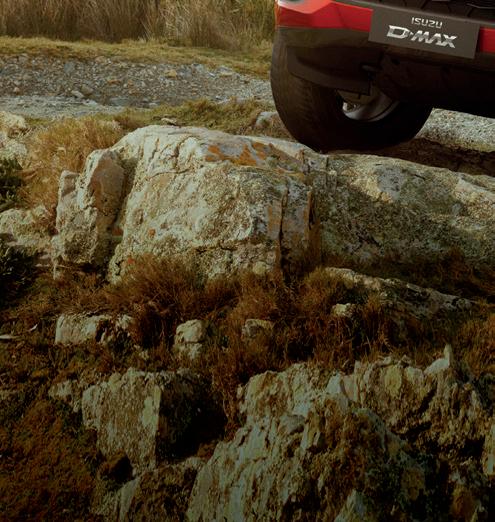






Designed by farmers who understand the importance of precision livestock weighing and performance tracking
Weigh your livestock or measure your animals’ DLWG
Load the app on your phone to see the weights in real time Reports on weights, DLWG and draft sessions Visual display –quickly

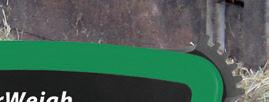





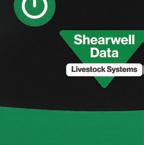
























ODuncan Macalister Vice-President
ne hundred days in and I can now navigate the road from Glenbarr to Edinburgh as if on autopilot - though I assure you, I keep my eyes open! It has been a whirlwind transition into my new role as Vice-President, but with each passing week, I am growing more accustomed to the responsibilities and opportunities that come with it.
A recent visit to NFU Mutual headquarters deepened my understanding of the history and principles behind the mutual concepta foundation that continues to guide our work. Meeting with the CEO and Chair of AHDB was equally insightful,

TRobert Neill Vice-President
hat’s the fi rst 100 days of being VicePresident completed and a lot has happened in that time. Every NFU Scotland committee has had their fi rst meeting and I’ve managed to attend all of them, except the Livestock one due to a diary clash. I have also recently been on a trip to Brussels to the BAB offi ce along with the other UK unions which was an interesting experience. Other meetings have included the Animal Health and Welfare Group, SQC, SAMW, and EID stakeholders Group. There have been lots of topics covered from cereal imports to animal disease outbreaks. Bluetongue has been the topic of many of
as their team of 350 staff is dedicated to evidencebased agricultural research across multiple sectors. I was pleased to hear their openness in sharing this wealth of knowledge with us. Similarly, engaging with the QMS board confi rmed their willingness to collaborate for mutual benefi t.
As upland lambing draws to a close, I remain acutely aware of the fi nancial and emotional toll that apex predators infl ict on our farmers and crofters. This challenge weighs heavily on many and addressing it remains a priority.
Another area of my work has been representing NFU Scotland members at the recent Muirburn licensing
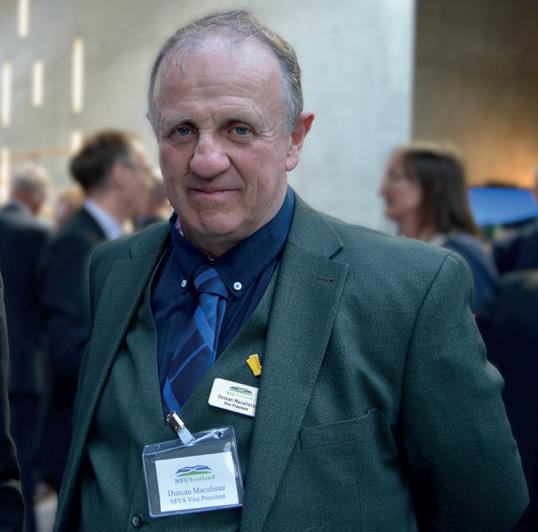
working group meeting has underscored the complexities of crafting a workable scheme without unintended consequences. I will continue advocating for practical solutions that serve the best
these discussions, but it is impossible at the moment to make decisions on how to prepare and deal with the disease in Scotland. We just don’t know whether the summer conditions will enable the midges, and the disease, to reach Scotland. At least from 30 April we have the option to vaccinate our livestock here in Scotland. It’s good to have some tools in the toolbox.
At home on our farm, it has been an exceptionally dry spring with only 8mm of rain in March and April. This meant that all the spring cereal sowing was done before we started calving at the beginning of April. Calving was much easier this year compared to last year
interests of our industry and communities.
I’m looking forward to the next round of committee meetings and, most importantly, engaging with members at summer shows.


being able to get everything straight out to grass. I write this article, a few weeks before publication, this could have all changed – “rain in May makes the hay!”
We’ve also taken advantage of this dry spell

to get on with reclaiming an area of old pasture. We have lifted in excess of seven hundred tons of stone from 22 acres. Lime was applied and it has been re-seeded with arable silage, no gain without some pain!
The Union has urged the UK’s major retailers to increase the presence of Scottish produce on supermarket shelves, following publication of the full-year findings of its 2024 ShelfWatch initiative. The initiative, which monitored sourcing levels at Aldi, Asda, Co-op, Lidl, M&S Food, Morrisons, Sainsbury’s and Tesco, found that only 17% of own-label products were Scottish. Aldi emerged as the leader in Scottish sourcing with an average of 40%, followed by Lidl (30%) and Co-op (22%). M&S Food showed the most improvement over the year.
Despite strong overall support for British produce (63% of own-label products), ShelfWatch recorded a 6% increase in imports during 2024, raising concerns about reliance on foreign goods.
NFU Scotland has identified a potential £500m growth opportunity for Scottish farmers, crofters and growers if retailers increase Scottish sourcing by 12%.

To achieve this, NFU Scotland has written to the eight retailers, urging them to:
- Adopt a ‘Scottish First’ sourcing policy.
- Run promotional campaigns highlighting Scottish produce.
- Ensure fairness in pricing and end excessive discounting.
- Reform labelling practices to provide clearer country-of-origin information.
- Improve in-store branding to separate Scottish and imported products.
President Andrew Connon emphasised that collaboration between retailers, farmers and policymakers is key to unlocking these opportunities. He praised Aldi and Lidl for their ongoing commitment but stressed that overall Scottish sourcing levels remain disappointingly low.


With over 15,000 products examined across 290 stores in 2024–25, ShelfWatch data underscores the complexities of supply chains. NFU Scotland remains committed to working with retailers to drive meaningful change for Scottish agriculture.
Readers can find the 2024 ShelfWatch report on our website www.nfus.org.uk
Following a very dry winter and the recent spell of hot weather, water resources in Scotland are under increasing pressure. As we move into the summer months and conditions could become more challenging, it’s essential for businesses to take proactive steps to conserve water and use it responsibly.
SEPA have the following top tips for businesses, and we encourage all members to implement these practical steps.
• Stay informed: Keep up with the latest Water Situation Report at www.sepa.org.uk/waterscarcity.
• Know your water use: Regularly monitor consumption to ensure efficiency.
• Fix leaks fast: Even small leaks can lead to significant wastage.
• Cut back on non-essential use: Every drop counts in preserving resources.
• Co-ordinate with others: Consider staggering or sharing abstraction where possible.
• Follow licence conditions: Regulations are in place to protect businesses and the environment.
The Union maintains close communication with SEPA will keep members updated on any changes or developments. By working together, we can protect Scotland’s water supply while continuing to support a thriving agricultural sector.
Refer and save up to 100% on your 2026 NFU Scotland membership
We’ve launched a new initiative to empower members to help grow the Union - and get rewarded for it. From now to October 2025, members can earn 10% off their 2026 membership fees for every new member they sign-up, up to a maximum of 10 referrals (that’s potentially your entire 2026 membership for free!).
This is a simple, fair way to reward those who help us grow - and increase the strength of our voice in Holyrood, Westminster and the media.
Here’s how it works:
• For each new member you sign-up, you get 10% off your 2026 headline membership fee.
• Max out at 10 referrals to get your entire 2026 membership free.
• Deadline for referrals: 15 October 2025.

How to refer:
1. Speak to your prospective member –tell them about the benefits of joining NFU Scotland and encourage them to sign up.
2. When they’re ready to join, complete the application form at joinnfus.org.uk, including your name and membership number.
3. Alternatively, the new member can sign-up themselves at joinnfus.org.uk.
Make sure they enter your name and membership number during the signup process to make sure you get the credit.
The deadline for referrals is 15 October 2025. All successful referrals will be
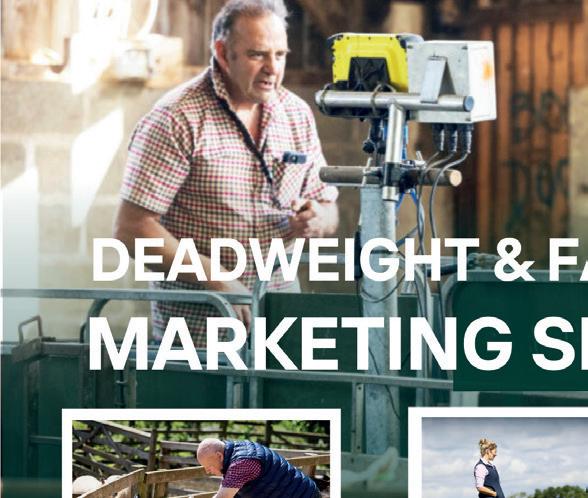

verified and matched before final 2026 fees are issued.
This isn’t just about savings - it’s about power in numbers. A growing membership gives NFU Scotland more strength to:
• Influence decision-makers
• Secure sustainable agricultural policies
• Hold retailers accountable
• Protect rural livelihoods
Let’s unite to shape the future of Scottish agriculture and make sure your neighbours, friends and colleagues are part of it. Visit joinnfus.org.uk to start referring today.


A substantial traditional livestock farm with a farmhouse, a range of outbuildings and land extending to approx. 176.31ha (436 acres) in the central belt of Scotland. Available as a whole at o ers over £1,680,000
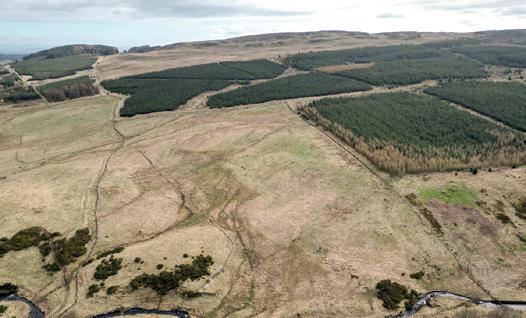
Lot 1: Field 1
Approx. 16.95 acres
O ers over £50,000

Lot 2: Fields 19, 21 & 22
Approx. 38.87 acres
O ers over £155,000

Lot 3: House, Outbuildings & Land
Extending to approx. 368.66 acres
O ers over £1,475,000






The distinctive ‘crex, crex’ call of corncrakes is being heard more frequently on the Isle of Skye, thanks to the eff orts of crofters. Once common across the UK, corncrakes faced near extinction in the 20th century. Now, Skye is one of the few places in Scotland where they can still be found, alongside a single mainland site and small numbers in England and Northern Ireland.
The Skye Crofting and Corncrake Partnership is now showing signs of success, with the number of calling males on Skye in 2024 up on 2023 numbers. The Partnership is supported by SAC Consulting, RSPB Scotland, NFU Scotland, Scottish Crofting Federation, crofters, farmers, conservationists and the local community.
Janette Sutherland, Senior Consultant and Area Manager of SAC Consulting in Portree, said, “Corncrakes use tall vegetation to provide themselves with cover and there are two key ways that crofters can help them.
“They can delay their mowing of silage or hay until August, when most second broods will have hatched, and they can also use wildlife friendly mowing practices – cutting out from the middle and allowing the corncrakes to reach the edges of the fields without breaking cover of the uncut longer vegetation.
“What crofters and farmers have been doing does definitely seem to be making
a difference and this is a great example of how they have come to the aid of an endangered species just when they need our help most. It was rewarding for the crofters and farmers who willingly signed up to do their bit for corncrakes that numbers showed such a big increase.”
The Corncrake Calling project, led by RSPB Scotland and supported by The National Lottery Heritage Fund, provided funds for the Corncrake Initiative, a scheme which pays crofters and farmers to delay mowing until August when the first brood of chicks will have hatched.
Corncrakes head some 6,000 miles on an indirect route to the Democratic Republic of Congo in central Africa each winter, a journey that can take them up to two months. Those that survive their travels tend to return to Skye and other Scottish sites in April, finding refuge


in rougher vegetation along sheltered ditches and walls until meadow grasses begin to grow. Their maximum lifespan is only three years, so a successful breeding season is crucial for the long-term survival of the species.
Skye crofters and farmers who adapt their working practices to help benefi t the environment can be supported via the Corncrakes Initiative and the Scottish Government’s Agri Environment Climate Scheme.
Janette added: “The late cutting and the wildlife friendly mowing practices are not what crofters would normally choose to do – cutting from the middle, for example, would go against their instincts and use more fuel. However, what they are doing for the corncrakes on Skye hopefully means a familiar sound of summer on the island can be preserved for future generations to enjoy.”
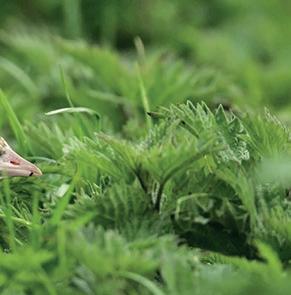



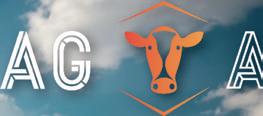

















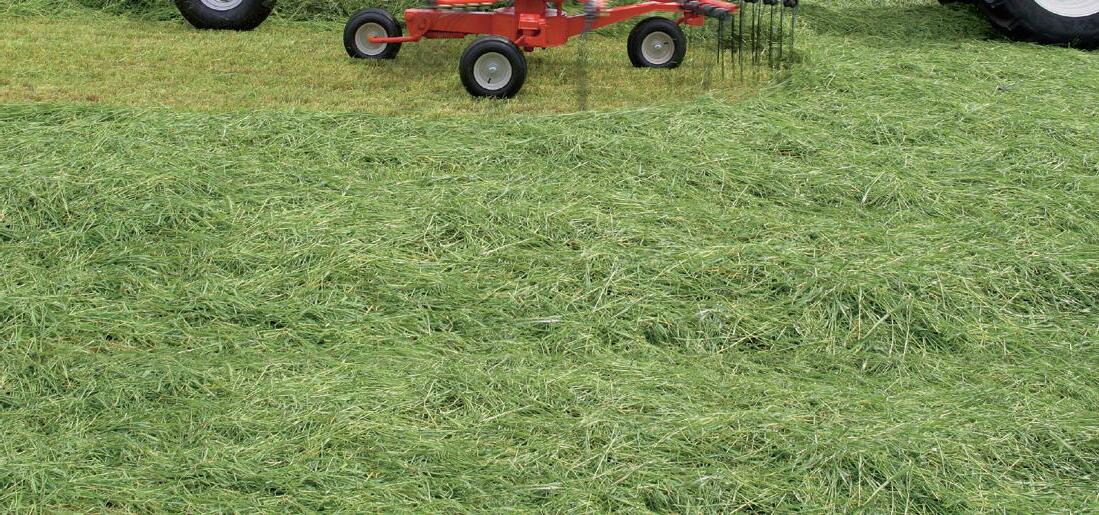






In mid-April, a full meeting of Scottish Partnership Against Rural Crime (SPARC) representative organisations was held within the court room at the Scottish Police College at Tulliallan. The main topic for discussion was the new Scottish National Rural Crime Strategy 2025-2028 which will be officially launched at the Royal Highland Show in June.

Alex Paterson has become the Royal Highland & Agricultural Society of Scotland’s (RHASS) new Chief Executive. Alex will play a pivotal role in shaping the organisation’s strategic direction, delivering growth and ensuring strong financial stability and governance.
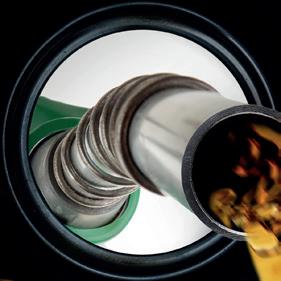
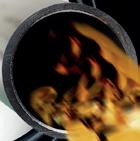

Members across the country who have signed up for the fuel cards we are offering through our partnership with UK Fuels are already benefiting significantly at the fuel pumps. Some of the benefits for NFU Scotland members using the fuel cards are:
• Fixed weekly commercial diesel price with annual average savings of pump price minus 15ppl.
• Unleaded will be charged at the pump price minus 1ppl.
• No contract, account charges or card charges.
• Access to over 7,200 fuel stations including Shell, ESSO, BP, Morrisons, Tesco, Sainsbury’s, Applegreen, Texaco, Moto and many more.
Health and Safey Executive (HSE) has recently announced the launch of the renewal assessment process for glyphosate, a broad-spectrum herbicidal active substance. The Glyphosate Renewal Group (GRG) has submitted a dossier to the HSE in support of renewing the approval of glyphosate in GB. The HSE has deemed the application admissible and will now assess whether glyphosate continues to meet the approval criteria for an active substance in GB. To allow for a renewal assessment to be completed, HSE has extended the approval of glyphosate until 15 December 2026.
• Online account management using the Velocity app and website.
• Ability to plan journeys with E-route via smartphone or SatNav.
• Simple weekly invoicing paid via direct debit.
Using the UK Fuels card at the garage forecourts:
• Your fuel card is not contactless and, in most instances, does not swipe, you will have to present your card to the cashier at the point of payment.
• All fuel cards are not accepted at selfservice pumps.
• Each week, on a Monday morning, all card holders will be notified of the price you will pay at the pump. Call UK Fuels on 01270 667 691, email: nfuscotland.partners@radius.com or visit www.ukfuels.co.uk/nfu-scotland to sign up for free or find out more information.

HSE has published a dedicated webpage outlining the renewal process (visit www.hse.gov.uk and search for glyphosate). This includes information on the legislative framework, timelines, the submitted dossier, and how stakeholders can stay informed.
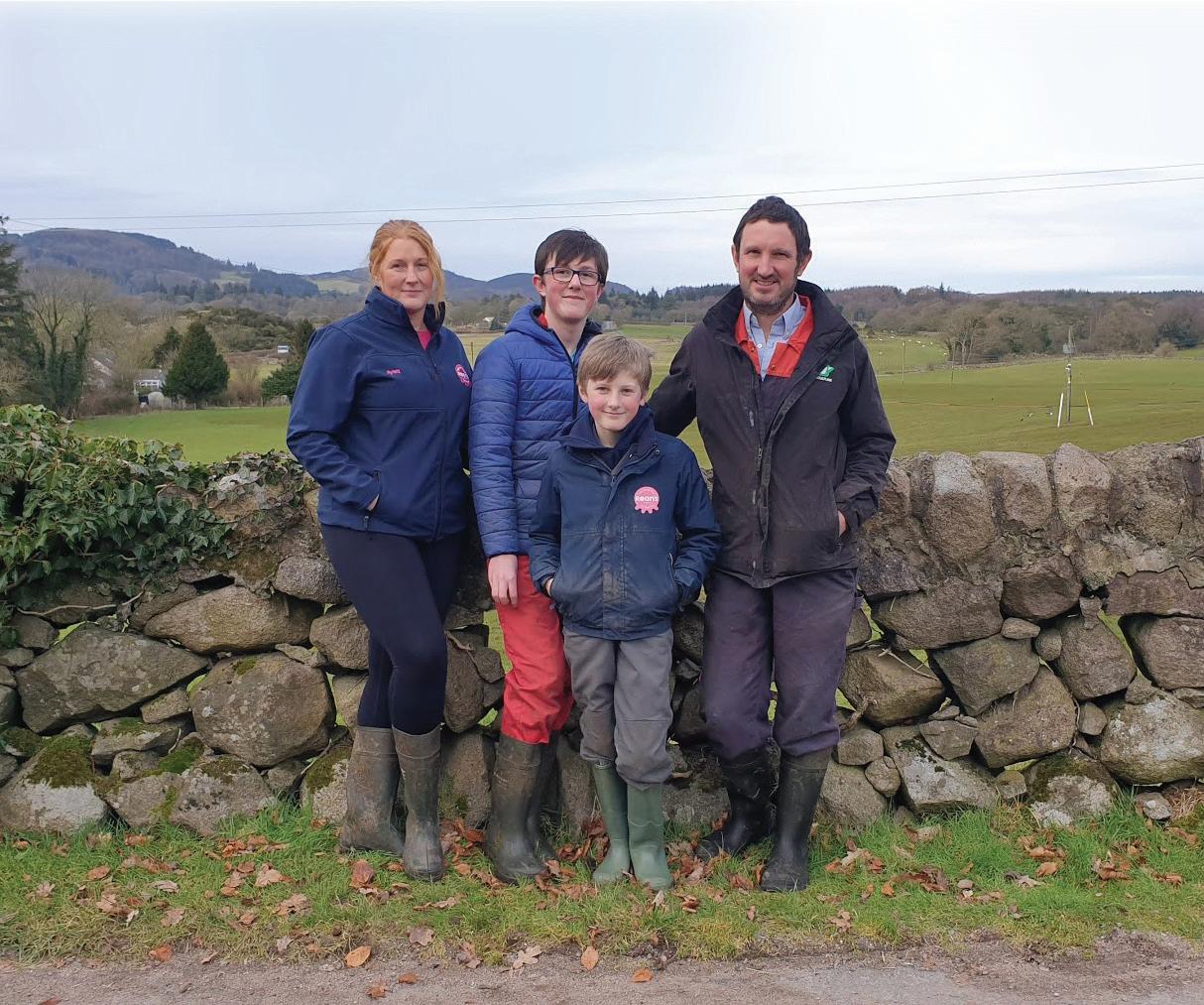

With a luxurious cab and cutting-edge transmission technology that sets it apart from the rest, whether your focus is transport tasks, loader efficiency, grassland or arable farming, there is a Vestrum designed for you.
Speak to your local dealer today to find out how Scottish Machinery Ring Members can benefit from exclusive rebates on all Case IH machines.
DEALERS (MAIN DEPOTS)
AL Agri, Forfar, 07709 215713
Davidson Tractors Ltd, Newton Stewart, 01988 840272
Everitt & Marshall Ltd, Hexham, 01434 603194
G Marshall Tractors Ltd, St Boswells, 01835 823240
Glenside Tractors Ltd, Campbeltown, 01586 553624
J Low Agri Services Ltd, Kelty, 01383 830220
Mark Garrick Ltd, Elgin, 01343 860556
Paxtons, Alnwick, 01665 605577
R C Dalgliesh, Lockerbie, 01576 202422
Ramsay & Jackson Ltd, Mauchline, 01290 550329
MACHINERY RINGS
Borders, 01896 758091
HBS Ring, 01463 811603
Lothian, 0131 339 8730
Orkney, 01856 879080
Ringlink Scotland, 01561 377790
Rural Services Scotland, Tarff Services, Tayforth,



NFU Mutual hails the work of FareShare, who are supported by Southern England Farms
NFU Mutual hails the work of FareShare, who are supported by Southern England Farms
TWWWhile many people look forward to traditional festive fare at this time of year, others are unable to afford even the most basic food for themselves, and their families.
hile many people look forward to traditional festive fare at this time of year, others are unable to afford even the most basic food for themselves, and their families.
Khile many people look forward to traditional festive fare at this time of year, others are unable to afford even the most basic food for themselves, and their families.
The cost-of-living crisis – and rising cost of even basic foods – has made it even more difficult for many people to put a meal on the table this year. In fact, more than 13 million people in the UK face food insecurity, according to FareShare, the UK’s biggest charity fighting hunger and food waste.
he imminent show season allows the best of British livestock to be displayed for crowds and fellow farmers to admire. The highlight of the farming calendar, agricultural shows allow farmers to showcase the best of their livestock and breeding operations, whilst meeting with fellow breeders and enjoying some off the farm socialising. These events not only celebrate the hard work and dedication of farmers but also provide a platform for networking and recognition.
Learn how to make your money work best for you with advice from NFU Mutual on investing wisely and understanding your allowances
eeping all of your money in cash savings accounts may seem like a safe option. But you may miss out on the potential to grow your money, particularly if interest rates don’t keep up with inflation. Now could be a good time to reconsider how and where to keep your money, and understanding your allowances can be helpful.
The cost-of-living crisis – and rising cost of even basic foods – has made it even more difficult for many people to put a meal on the table this year. In fact, more than 13 million people in the UK face food insecurity, according to FareShare, the UK’s biggest charity fighting hunger and food waste.
Animals taken away from their normal environment can become less predictable. To mitigate this, farmers should:
• Adhere to the agricultural show’s rules and guidelines: Each show will have specific requirements and protocols to ensure the safety and well-being of all participants.
However, ensuring the safety of livestock and the public during transportation and at the show is a key focus, as well as setting sights on rosettes. Here are some essential tips to help maintain high standards of animal welfare and safety.
Top up your pension
At the same time, every year, more than three million tonnes of good-to-eat, surplus food goes to waste on UK farms. That’s enough for seven billion meals, according to FareShare, which takes good-to-eat surplus food from across the food industry, sorts it and passes it onto a network of nearly 8,500 charities and community groups across the UK.
The current tax year ends on 5 April 2024. Here are some things for you to consider:
WAt the same time, every year, more than three million tonnes of good-to-eat, surplus food goes to waste on UK farms. That’s enough for seven billion meals, according to FareShare, which takes good-to-eat surplus food from across the food industry, sorts it and passes it onto a network of nearly 8,500 charities and community groups across the UK.
Farmers must comply with animal welfare transportation regulations. This includes ensuring that the vehicle and trailer used for transportation are in good condition, planning the journey to keep it as short as possible, and

• Perform health checks and monitor animals for illness, disease, or stress: Regular health checks are vital to detect any issues early and address them promptly. Consider quarantining the animal(s) before and after attending the show.
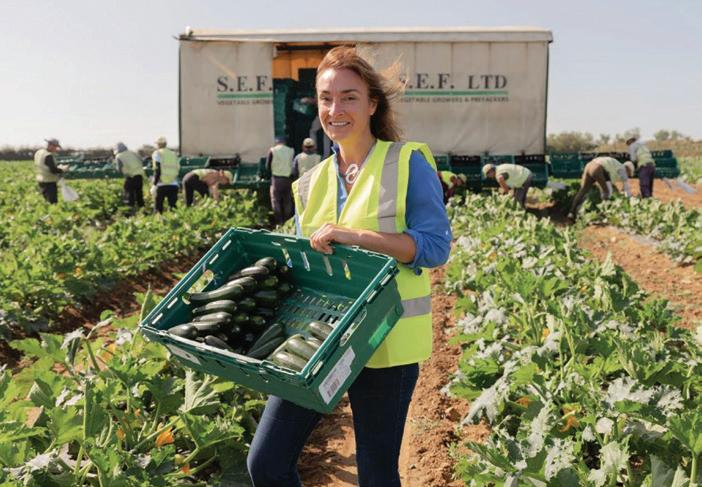
To learn more about NFU Mutual and our community support initiatives, visit www. nfumutual.co.uk/ fightfoodpoverty/or scan the below QR code with a smart phone
To learn more about NFU Mutual and our community support initiatives, visit www. nfumutual.co.uk/ fightfoodpoverty/or scan the below QR code with a smart phone
ith climate change driving hotter and more extreme weather, it’s no wonder that research conducted by NFU Mutual shows that heat stress in cattle is becoming a bigger consideration for farmers.
In 2022-2023, the charity redistributed 54,000 tonnes of food: enough to make 128m meals, or four meals every second. At NFU Mutual, we see it as part of our role to make positive impacts on the welfare of those working and living in rural communities in the UK, and we are only too aware of the growing impact of food poverty in rural communities.
But what is heat stress and why is it a problem?
Putting money into a pension is one of the most tax-efficient ways to invest for the long term. The government helps you invest – for every £80 you pay into your pension, HMRC currently pays an extra £20 tax relief making your actual contribution worth £100. In a pension, any growth is free from UK Income Tax and Capital Gains Tax. There are however rules on the amount you can contribute to your pension each year and still receive tax relief.
In 2022-2023, the charity redistributed 54,000 tonnes of food: enough to make 128m meals, or four meals every second. At NFU Mutual, we see it as part of our role to make positive impacts on the welfare of those working and living in rural communities in the UK, and we are only too aware of the growing impact of food poverty in rural communities.
• Royal Cornwall 5th-7th June
• Royal Three Counties 13th-15th June
• Royal Highland Show 19th-22nd June
• Reduced milk yields from cows.
confi rming that the animals are fi t for travel. These steps are crucial to prevent stress and injury to the animals.
As farmers know all too well, this surplus food will often end up getting ploughed back into the ground, used for animal feed or sent to landfill.
You can invest up to £2,880 per child each tax year into a pension and HMRC will top this up with a further £720 to give a total of £3,600. This is a long-term investment, designed to give children a head start.
As farmers know all too well, this surplus food will often end up getting ploughed back into the ground, used for animal feed or sent to landfill.
As farmers know all too well, this surplus food will often end up getting ploughed back into the ground, used for animal feed or sent to landfill.
• Reduced farm income, putting pressure on fine margins and profitability.
when you make the gift. Inheritance tax planning is not regulated by the Financial Conduct Authority.
Capital Gains Tax
To learn more about NFU Mutual and our community support initiatives, visit www. nfumutual.co.uk/ fightfoodpoverty/or scan the below QR code with a smart phone
Heat stress can have a major impact on farm businesses but you can protect dairy cattle.
But the Surplus with Purpose scheme avoids thousands of tonnes of surplus fresh fruit and vegetables, meat and dairy products being wasted. Even cupboard items, and chilled and frozen foods, find a new home as part of the scheme.
But the Surplus with Purpose scheme avoids thousands of tonnes of surplus fresh fruit and vegetables, meat and dairy products being wasted. Even cupboard items, and chilled and frozen foods, find a new home as part of the scheme.
But the Surplus with Purpose scheme avoids thousands of tonnes of surplus fresh fruit and vegetables, meat and dairy products being wasted. Even cupboard items, and chilled and frozen foods, find a new home as part of the scheme.
• Health-related issues such as increased risk of disease, lameness and reduced fertility. There is also evidence to suggest that it affects the unborn calf and their subsequent performance.
• Ensure animals are trained and used to being handled: Familiarity with handling reduces stress and makes the animals more manageable during the show. The sooner you start training the animal, the easier they will be to handle and keep control of.
This is why our NFU Mutual Charitable Trust – which exists to promote and support charities working in agriculture, rural development and insurance – is proud to support FareShare’s fight against food poverty. Since 2021, the NFU Mutual Charitable Trust has donated a total of £250,000 to the charity.
The cost-of-living crisis – and rising cost of even basic foods – has made it even more difficult for many people to a meal on the table this year. In fact, more than 13 million people in the UK face food insecurity, according to FareShare, the UK’s biggest charity fighting hunger and food waste. same time, every year, more than three million tonnes of good-to-eat, surplus food goes to waste on UK farms. That’s enough for seven billion meals, according to FareShare, which takes good-to-eat surplus food from across the food industry, sorts it and passes it onto a network of nearly 8,500 charities and community groups across the UK. 2022-2023, the charity redistributed 54,000 tonnes of food: enough to make 128m meals, or four meals every second. At NFU Mutual, we see it as part of our role to make positive impacts on the welfare of those working and living in rural communities in the UK, and we are only too aware of the growing impact of food poverty in rural communities. is why our NFU Mutual Charitable Trust – which exists to promote and support charities working in agriculture, rural development and insurance – is proud to support FareShare’s fight against food poverty. Since 2021, the NFU Mutual Charitable Trust has donated a total of £250,000 to the charity.
This is why our NFU Mutual Charitable Trust – which exists to promote and support charities working in agriculture, rural development and insurance – is proud to support FareShare’s fight against food poverty. Since 2021, the NFU Mutual Charitable Trust has donated a total of £250,000 to the charity.
Heat stress occurs when cows retain more heat than they can release, affecting both indoor and outdoor herds.
During warmer weather, which is typical for agricultural shows, farmers should follow government guidance on transportation during extreme heat including avoid transporting animals when temperatures exceed 30°C unless there is temperature control within the vehicle and/or trailer and, if humidity is high, check the ‘feels like’ temperature for the intended route. This precaution helps to prevent heat stress and ensures the animals’ comfort and safety.
• Royal Norfolk Show 25-26th June
• Great Yorkshire Show 8th-11th July
• Royal Welsh 21st- 24th July
• Provide suitable access to water troughs, ensuring they are in good working order.
The cause is due to a rise in environmental temperatures and humidity and an increase in the cow’s heat production associated with increasing milk yields. To monitor heat stress levels, the industry uses the Temperature Humidity Index (THI) which indicates how severe the condition could be and suggests that action needs to be taken.
• New Forest Show 29th-31st July
You can invest up to £20,000 this tax year in an ISA, building up a nest egg free of UK Income tax and Capital Gains tax. The same tax benefits are available with Junior ISAs, which you can use to build up a pot of money for a child – they’ll be able to access that when they’re 18 years old. The maximum Junior ISA contribution is £9,000 in the 2023/4 tax year.
Furthermore, farmers tell us they’re not always aware of the extent of the financial losses they’re suffering from heat stress in cattle.
Putting money aside for children can also help reduce your potential Inheritance Tax bill.
Key actions you can take
Things you should know:
How farms are donating their surplus for good Farms and rural businesses throughout the are also doing their bit to help. They can participate through FareShare’s Surplus with Purpose scheme, which helps businesses to cover the extra costs of redistributing their unsold food to people who need it most.
How farms are donating their surplus for good Farms and rural businesses throughout the UK are also doing their bit to help. They can participate through FareShare’s Surplus with Purpose scheme, which helps businesses to cover the extra costs of redistributing their unsold food to people who need it most.
How farms are donating their surplus for good Farms and rural businesses throughout the UK are also doing their bit to help. They can participate through FareShare’s Surplus with Purpose scheme, which helps businesses to cover the extra costs of redistributing their unsold food to people who need it most.
In recent years industry studies have highlighted the condition and the impact it can have on farm businesses. It’s generally acknowledged that heat stress can result in:
Once you reach 55 (57 from 2028), you can take money from your pension as you wish. The first 25% will normally be tax-free, any amount over and above is added to your other income and taxed. So withdrawing lump sums from your pension could push you into a higher Income Tax bracket. Spreading withdrawals over a number of tax years could help reduce the impact of any tax liabilities. There’s also a limit on the annual pension contributions you and your employer can make if you’ve already taken a taxable withdrawal from your pension. This could mean you miss out on valuable employer pension contributions in addition to your own.
It’s wise to take a long-term view on inheritance planning, so that your heirs don’t pay more tax than they need to.
Don’t forget Inheritance Tax planning
One grower making the most of the opportunity presented by the scheme is Southern England Farms, based in Hayle, West Cornwall. The business works over 6,500 acres and is a key supplier to several major UK retailers, including a number of supermarkets, of Cornish-grown courgettes, cauliflower, broccoli, spring greens, sweetheart and savoy cabbage. Co-owner Jane Richards, along with her 400-plus pickers, works with FareShare to ensure any excess vegetables never go to waste. Since 2019, they have donated 396 tonnes of excess produce to the charity.
One grower making the most of the opportunity presented by the scheme is Southern England Farms, based in Hayle, West Cornwall. The business works over 6,500 acres and is a key supplier to several major UK retailers, including a number of supermarkets, of Cornish-grown courgettes, cauliflower, broccoli, spring greens, sweetheart and savoy cabbage. Co-owner Jane Richards, along with her 400-plus pickers, works with FareShare to ensure any excess vegetables never go to waste. Since 2019, they have donated 396 tonnes of excess produce to the charity.
One grower making the most of the opportunity presented by the scheme is Southern England Farms, based in Hayle, West Cornwall. The business works over 6,500 acres and is a key supplier to several major UK retailers, including a number of supermarkets, of Cornish-grown courgettes, cauliflower, broccoli, spring greens, sweetheart and savoy cabbage. Co-owner Jane Richards, along with her 400-plus pickers, works with FareShare to ensure any excess vegetables never go to waste. Since 2019, they have donated 396 tonnes of excess produce to the charity.
Our latest research has found that just over four in ten (41%) say that heat stress is a priority risk for their business while 70% are yet to take further steps to reduce the risk. *
Should you suspect heat stress with your dairy cattle this summer, Dr Tom Chamberlain** highlights some of the key actions that you can undertake to reduce heat stress whilst cows are grazing:
She adds: “The scheme with FareShare is a brilliant way of ensuring excess produce is redistributed to those who really need it. It is so very rewarding when we find out how many meals our surplus veg has gone on to make. It is great that NFU Mutual has embraced the scheme so wholeheartedly and supports their customers who wish to participate in ‘Surplus with Purpose’ too.”

Agricultural shows are a spectacle that draws crowds and showcases the fi nest livestock. Winning rosettes at these events can signifi cantly enhance the awareness of breeding operations. It allows farmers to demonstrate the quality of their stock and potentially command higher prices. The recognition gained from winning can also boost the reputation of the farm and attract new business opportunities. In 2020 250,000gns was paid at auction for a Limousin heifer, setting a record for the most paid for a cow in the UK and Europe. The heifer was a daughter of three-time supreme champion at Balmoral Show.
*Source: NFU Mutual Research with Dairy Farms and Dairies, August 2021
One way of doing this is to make gifts to your loved ones, taking advantage of the annual £3,000 gift allowance, or the ‘gifts out of normal expenditure’ exemption. Larger gifts can also be exempt from Inheritance Tax as long as you live more than seven years from
Jane says: “No farmer ever wants to see their produce go to waste. But sometimes circumstances mean there is a surplus that will often go into the waste trailer or simply become compost.”
Jane says: “No farmer ever wants to see their produce go to waste. But sometimes circumstances mean there is a surplus that will often go into the waste trailer or simply become compost.”
Jane says: “No farmer ever wants to see their produce go to waste. But sometimes circumstances mean there is a surplus that will often go into the waste trailer or simply become compost.”
• When buffer feeding adding suitable feed additives to maintain rumen health and ensure peak nutrition.
Those selling or gifting shares, or property other than their main home, will see the amount of tax-free gain they can enjoy fall from £6,000 to £3,000 from April 2024.
• The tax benefits of pensions and ISAs depends on individual circumstances and may change in the future.
She adds: “The scheme with FareShare is a brilliant way of ensuring excess produce is redistributed to those who really need it. It is so very rewarding when we find out how many meals our surplus veg has gone on to make. It is great that NFU Mutual has embraced the scheme so wholeheartedly and supports their customers who wish to participate in ‘Surplus with Purpose’ too.”
She adds: “The scheme with FareShare is a brilliant way of ensuring excess produce is redistributed to those who really need it. It is so very rewarding when we find out how many meals our surplus veg has gone on to make. It is great that NFU Mutual has embraced the scheme so wholeheartedly and supports their customers who wish to participate in ‘Surplus with Purpose’ too.”
• The value of your pension and investment funds can go down and you may get back less than you invested.
• Handlers should be capable and experienced in handling animals: Experienced handlers can better manage the animals and respond effectively to any unexpected behaviour. Wear appropriate personal protective equipment such as steel toecap boots.
• Implementing ‘Siesta’ Management where appropriate – this technique involves cows grazing directly after milking and then being ‘housed’ at around 10am, with buffer feed available to them. Cows are then sent back out to graze after afternoon milking to graze until dusk.
• Adjusting milking times to coincide with the cooler periods of the day.
• Installing shade and fans in holding yards.
We at NFU Mutual applaud Jane and all the team at Southern England Farms for their outstanding efforts in supporting the work FareShare does to alleviate food poverty in our communities.
We at NFU Mutual applaud Jane and all the team at Southern England Farms for their outstanding efforts in supporting the work FareShare does to alleviate food poverty in our communities.
We at NFU Mutual applaud Jane and all the team at Southern England Farms for their outstanding efforts in supporting the work FareShare does to alleviate food poverty in our communities.
We’re proud to support FareShare –and we praise all farms and rural businesses who participate in the Surplus with Purpose scheme.
It’s important to protect livestock both on and off the farm, NFU Mutual off er an option to insure higher value pedigree animals or breeding stock, and cover for specifi ed diseases. Consider whether you have appropriate Public Liability cover for when taking your livestock into public places.
• Implementing a tree planting programme at the boundaries of grazing paddocks to provide suitable levels of shade within the grazing environment.
We’re proud to support FareShare –and we praise all farms and rural businesses who participate in the Surplus with Purpose scheme.
We’re proud to support FareShare –and we praise all farms and rural businesses who participate in the Surplus with Purpose scheme.
For more information about FareShare’s Surplus with Purpose scheme, and how you can participate, visit www. fareshare.org
For further information and personalised advice on ensuring safety at agricultural shows, contact your local NFU Mutual Agent.
For more information about FareShare’s Surplus with Purpose scheme, and how you can participate, visit www. fareshare.org
For more information about FareShare’s Surplus with Purpose scheme, and how you can participate, visit www. fareshare.org
To find out more visit nfumutual.co.uk/ heatstress or contact your local agency office.
To find out more about NFU Mutual insurance or financial services, speak to your local NFU Mutual agency office or visit nfumutual.co.uk/tax-allowances NFU Mutual Financial Advisers advise on NFU Mutual products and selected products from specialist providers. When you get in touch, they’ll explain the advice service and charges.
November 2022






Iwords by
Brooke Harwood Communications Assistant
’ve been going to young farmers since I was in a pram,” laughed 29-year-old Jillian Kennedy, newly-elected Scottish Association of Young Farmers Clubs (SAYFC) National Chair.
“I offi cially joined when I was 14 but was taken along by my parents before that from a young age,” added Jillian, as we spoke on a sunny day at her childhood farm, ‘Lurgan’, near Aberfeldy. Sitting at the desk once occupied by her dad, former NFU Scotland President Martin Kennedy, Jillian was just three days into her new role. Refl ecting on her SAYFC journey, she was both upbeat and pragmatic about what lay ahead.
“It felt quite strange going into Saturday actually, excited but pretty nervous,” On 26 April, she was offi cially elected National Chair at SAYFC’s Annual General Meeting (AGM), taking on the responsibility of representing 3,500 members across Scotland for the next year.
Alongside her full-time role as a Forest Manager with Scottish Woodlands, and a continued passion for competitive Highland dancing, Jillian faces a demanding year. Although she had served as ViceChair under Ally Brunton, she hadn’t taken the outcome for granted. “Just in case,” she told me as she delayed this interview until after the AGM.
Her immediate priorities include building strong relationships with the new Senior Leadership Team, especially incoming Vice-Chair Ewan Bremner. “I’m very much looking forward to working with him,” she said.
“In terms of policy aims, I mean the big one is ‘The Big Build’,” a fundraising campaign to rebuild SAYFC’s National Hub at Ingliston, which was declared unsafe last year. “We’ve got a target rebuild date of the fi rst of October this year, and just a casual £1 million to raise as well,”
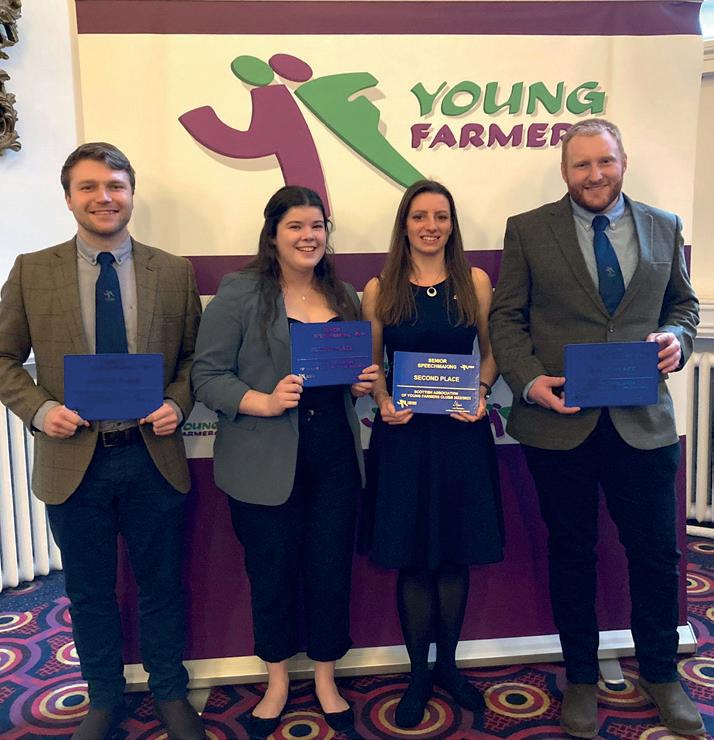
she said half-laughing.
Throughout her predecessor’s term, Ally Brunton literally ran strong fundraising eff orts for the campaign, participating in the Edinburgh marathon on 25 May. Taking his baton, Jillian has committed to join him for her fi rst-ever half marathon.
“I don’t run,” she confessed, “and my naivety was so strong that I didn’t know people were this into running and these things sold out!
“So after, after that minor mistake and a lucky transfer ticket, I was like, right okay, guess I’m doing it.” I asked how training was going, with around a month to go at the time of our interview. “I’ve been on six runs now and I wouldn’t say I’m enjoying it, but I think that’s the point?”
Despite her relaxed tone, to me Jillian’s was unpretentious, driven and quietly fi erce. The determination that got her to the top of SAYFC, I didn’t doubt would get her past the Edinburgh fi nish-line.
“I think the word might be competitive,” Jillian refl ected,
“I always want to do better than me the year before.” A long-standing member of Aberfeldy Young Farmers Club, Jillian said it was the club’s sport opportunities that she fi rst enjoyed in young farmers. Moving up the ranks in her teenage years, Jillian soon took on leadership roles before landing as Chair for Aberfeldy in 2020, weeks before the pandemic.
She said: “I was maybe a little bit resistant to take the chair role, because I’m not necessarily the most forward person. When I was eventually elected, I was so ready to hit the ground running and then Covid hit.
“But we did not let that stop us and we just moved a lot of things online. I was adamant we were going to get stuff done.”
From there, she rose quickly. Becoming National Chair only fi ve years later, she described the pace of her progress as “quite an escalation.”
“Did you ever expect to make it to National Chair?” I asked.
“Not at all,” she replied. “I think it’s just been a little step at a time,
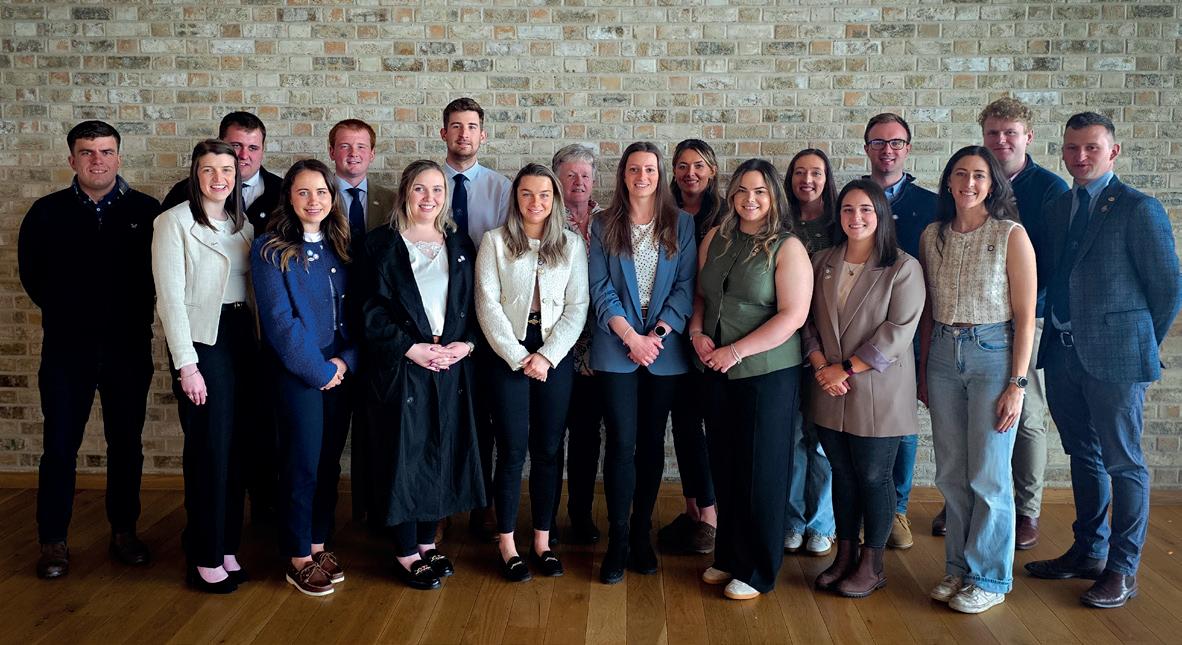
and this is where I’ve ended up. The more involved you become, the more involved you want to be. You start asking questions like, ‘could we not do this instead’, ‘would this not be better for us’, and so on.
“I also think when you do something well, you get encouraged to try more.”
Her role as National Chair will continue until SAYFC’s 2026 AGM. Looking further ahead, I had to ask the million-dollar question: could she follow her father’s path to NFU Scotland Presidency?
She laughed: “I don’t think I could do that role but never say never, right?
“There’s probably a little element of competition and inspiration when it comes to my dad,” Jillian added halfjokingly. “We’re quite a competitive family.
“Dad did a few roles in young farmers, he was East Vice-Chair, but he wasn’t East Region Chair so that brought a bit of, let’s call it competitive banter, when I took that role.”
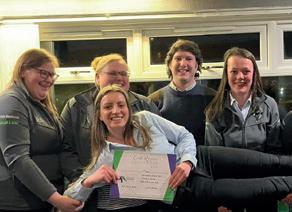







There was no mistaking the shared DNA. Not just in ambition, but in genuine commitment to the agricultural community.
Jillian added: “I think he would tell you he’s kind of done the same thing as me, started at young farmers and
then taken the next step, the next step the whole way up. In all honesty, I think that just kind of shows his strength and passion for the industry which is quite inspiring.”
Though she hasn’t set her sights on presidential duties just yet, Jillian


NFU Scotland SAYFC membership - join today!

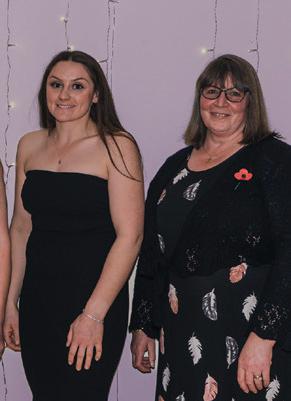
said she was keen to strengthen the partnership between SAYFC and NFU Scotland.
“As new committees have crept up in NFU Scotland, I hope that we see more and more young people joining the Union. The more diversity of thought that comes through these discussions can only be a good thing.
“We want to engage with a range of diff erent generations because quite frankly, we need that support, and I’d encourage our members to make use of the partnership.”
Jillian could not speak more highly of SAYFC and the role it had played in her life. Her dedication to the organisation, and to supporting the next generation of young people in Scottish Agriculture, was clear.
She said: “I’ve been in young farmers half of my life and know that there’s really something in it for everyone.
“I’m raring to go as National Chair and excited to see what this year will bring.”
Readers, if you are a current member of SAYFC you can join NFU Scotland today by becoming a NFU Scotland SAYFC member. You’ll have access to all the Union’s affi nity membership benefi ts including UK Fuels fuel cards and vehicle deals, and you’ll also receive an electronic copy of Scottish Farming Leader every month. Additionally, you will have the opportunity to attend NFU Scotland events such as the AGM and on-farm networking events and qualify for members rates where applicable. You’ll receive access to all member communication materials and have the opportunity to shape and infl uence priorities through various networks such as branches, committees and monitors. Opt-in by visiting https://joinnfus.org.uk/sayfc-members/
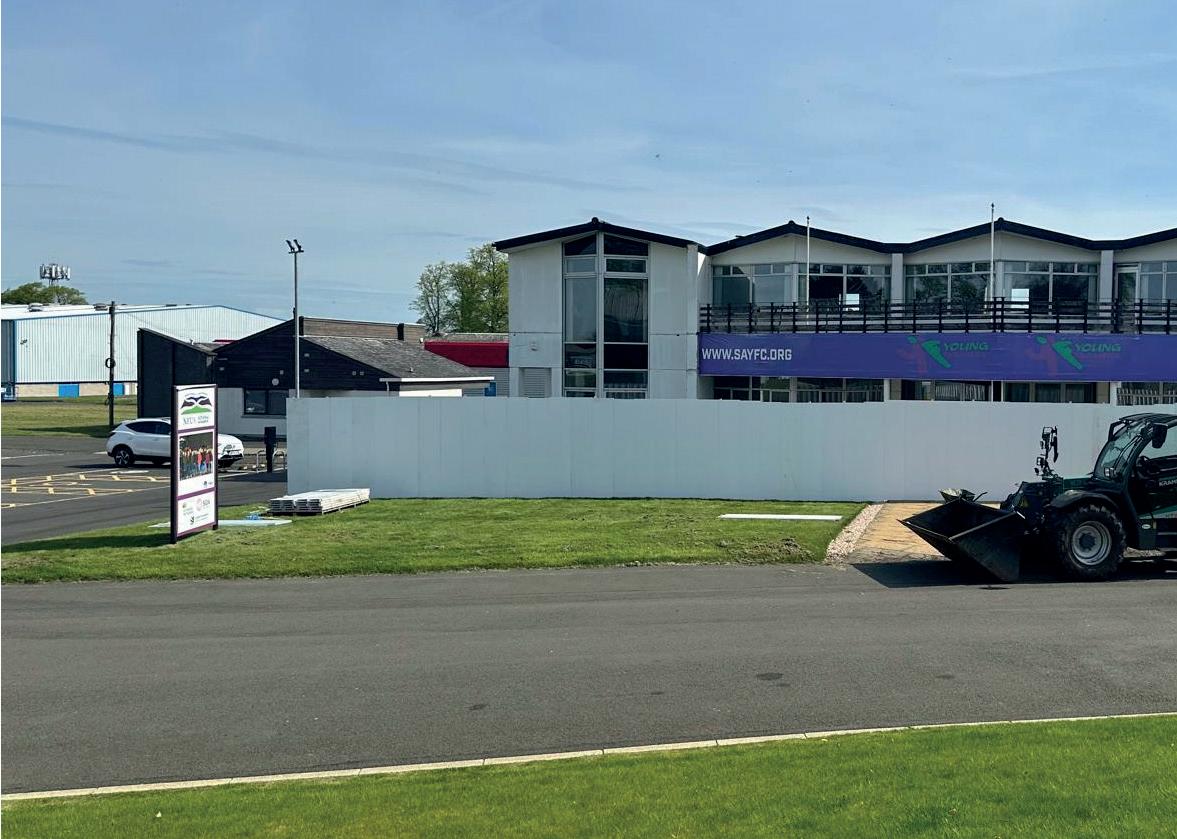

The initial phase of demolition has begun at the nowcondemned Young Farmers Centre in Ingliston, marking a signifi cant milestone towards establishing a new permanent home for Scotland’s Young Farmers.
The new centre will provide a base for Young Farmers activities throughout the year, whilst acting as a central offi ce space for the SAYFC staff team and a potential hub for other rural charities.
Fundraising eff orts are in full swing, and the Association are looking to the Young Farmers network and wider agricultural community for support. A donation page has been established to assist in achieving the £1 million goal necessary to fi nance the project with members spearheading fundraising events and challenges.
The immediate past National Chair, Ally Brunton, has, at time of writing, almost completed his epic
‘Run Chairman Run’ challenge. Having already conquered a half marathon in each of SAYFC’s three regions, he’s gearing up for his biggest test yet, taking on the Edinburgh Marathon on in late May. Additionally, on 17 May, a group of SAYFC members and staff from across the country joined fundraisers from RSABI to climb the iconic Kelpies sculpture in Falkirk.
If you would like to contribute to the Association’s fundraising eff orts and help secure the future of the nation’s young farmers, full details on how to donate can be found on the offi cial ‘Big Build’ webpage at www.sayfc.org/ donate/sayfcs-big-build . Opportunities are available for both individual and corporate support.






























For those wondering about where the Young Farmers will be located at the upcoming Royal Highland Show, a temporary relocation has been arranged with the help of RHASS. This year, SAYFC’s activities will be based out of a marquee situated behind Ingliston House, where the President’s marquee has been based before. Meaning that Young Farmers will remain very much at the heart of the event, with easy access for members and supporters to view the entries for this year’s competitions.






Beatrice Morrice Head of External A airs

We met with the Cabinet Secretary for Land Reform, Rural Aff airs and Islands
Mairi Gougeon at St Andrew’s House in April. We discussed the Land Reform (Scotland) Bill and a range of changes to the legislation we are seeking to improve the Bill for our members and the wider sector. Stage 2 is due to be completed by the end of June and NFU Scotland continues to engage with Ministers, Scottish Government Offi cials and MSPs as it progresses through the Scottish Parliament.



NFU Scotland held a reception at the Scottish Parliament titled ‘Sustainability in Scottish Agriculture’. This reception, kindly sponsored by Elena Whitham MSP, provided a great opportunity for our members to connect with their local MSPs ahead and for NFU Scotland to showcase the importance of Scottish agriculture to food and drink production, thriving rural communities, enhancing biodiversity and restoring nature. Over 25 MSPs attended along with stakeholders from the wider agri-food supply chain.
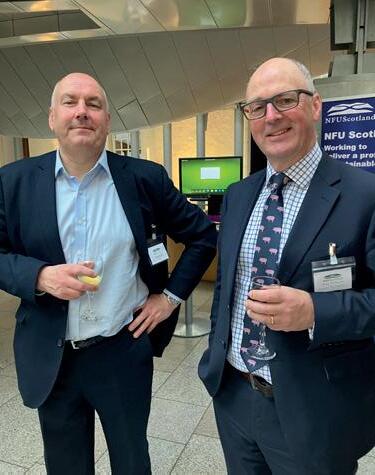




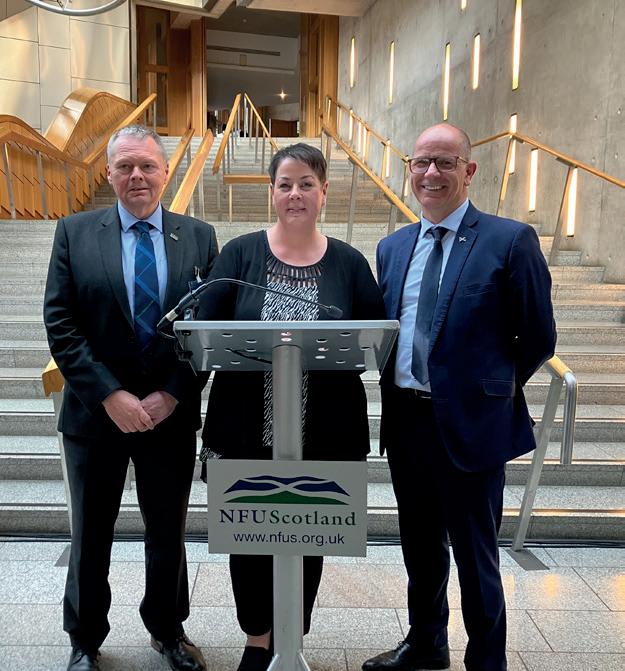






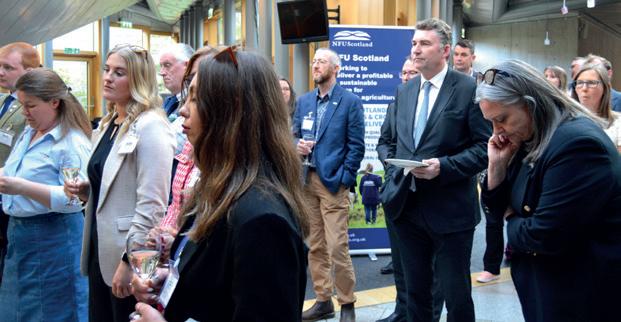



NFU Scotland has recently written to the Chancellor calling on the UK Government to:
1. Consider alternative proposals to the changes to Agricultural Property Relief (APR) and Business Property Relief (BPR) which would still generate the required Treasury revenue but not impact the viability of family farms;
2. Delay National Insurance Contributions increases for agricultural businesses
3. Exempt farmers from the double-cab pick-up tax changes.
These are barriers to growth for farmers and crofters and are causing huge concern for the agricultural sector. Recent research shows that investment across farm businesses is reducing. The UK Government’s focus is on economic growth therefore they need to take action. We also called for a delay to the introduction of the APR and BPR changes given the UK Government’s announcement of a review into farm profitability (which is being led by Baroness Minette Batters, former President of NFU). The letters can be found here on our website www.nfus.org.uk .
Sarah Cowie, Senior Policy Manager for Climate, Land and Business, is giving evidence to the Scottish Parliament’s Rural Affairs and Islands Committee in May on the Natural Environment (Scotland) Bill. This Bill introduces targets to improve biodiversity, covers Environmental Impact Assessments, updates aims of National Parks and also covers the management of wild deer. We submitted a written response to the Committee and continue to engage with politicians and Scottish Government officials on the Bill.

The Scotland Office hosted a ‘Food and Farming Roundtable’ event in Edinburgh on 30 April. President Andrew Connon and Jonnie Hall, Deputy CEO and Director of Policy, represented NFU Scotland at the event which was chaired by Scotland Office Minister Kirsty McNeill MP. Scottish Government Minister for Agriculture and Connectivity Jim Fairlie MSP, Defra and Department for Business and Trade representatives and stakeholders from the agri-food supply chain also attended.
Discussions focused on barriers to growth in the Scottish agri-food supply chain and explored policy solutions to support the growth of food production and manufacturing in Scotland. We welcomed the commitment from the UK Government to continue to engage with our vital industry. Following the meeting, Andrew Connon said: “NFU Scotland was pleased to attend the Food and Farming Roundtable. We discussed important issues such as
barriers to growth, seasonal workers and immigration and fairness in the supply chain – each critical for a profitable and sustainable future agricultural sector in Scotland. We welcomed the chance to underline the importance of farmers and crofters to the food and drink industry and to rural communities and hearing what actions the UK Government will take to help address the issues seriously impacting our sector currently.”
NFU Scotland also met with Scotland Office Minister Kirsty McNeill MP in advance of the roundtable and discussed key issues facing the sector.
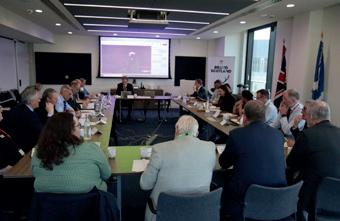






As the only water retailer with an official partnership with NFU Scotland, we’re already saving NFUS members money, and we could save you money too. Whether you’re running a small croft or a large farming business, we can reduce your fixed water charges and simplify how you manage your services.

Preferential water and wastewater rates for NFUS members
No hidden charges or sneaky small print


Specialist agriculture and trade effluent support
99% on-time meter readings by our own in-house team



we need is a few details about your business and our Scotland-based team will handle the switch for you





Sarah Cowie Senior Policy Manager

The Scottish Government introduced the Natural Environment (Scotland) Bill to Parliament on 19 February 2025. This legislation aims to halt biodiversity loss by 2030 and restore ecosystems by 2045, aligning with the Scottish Government’s broader Biodiversity Strategy and Delivery Plan for 2024–2030. The Bill has four main parts:
• Part 1: Gives the Scottish Government powers to introduce targets to improve biodiversity.
• Part 2: Allows the Scottish Government to make and change laws relating to the Environmental Impact Assessments (EIA) regime and the Habitats Regulations. This would replace a power that was lost as a result of the UK’s exit from the EU.
• Part 3: Updates the aims of the National Parks and makes changes to the way National Parks are run.
• Part 4: Relates to the management of wild deer.
Three public consultations were undertaken from 2023-2024 on the various proposals within the legislation. The statutory nature restoration targets and national parks proposals were consulted on in the 2023 Strategic Framework for Biodiversity consultation. The proposals relating to the EIA regime and 1994 Habitats Regulations were consulted on in 2024. The deer
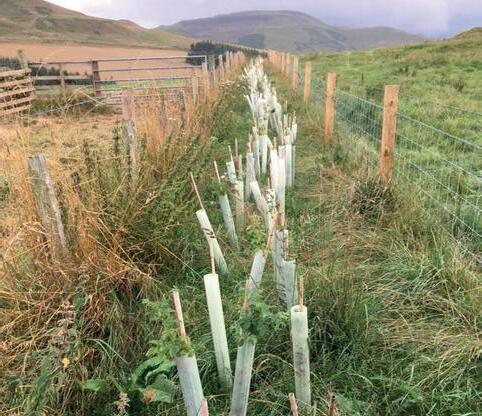
management proposals were consulted on in the 2024 consultation “Managing deer for climate and nature”. NFU Scotland responded to all three of these consultations following engagement with members, particularly the Environment & Land Use Committee.
At the time of writing, we are getting ready to respond to two Scottish parliamentary committee inquiries on the
Bill – the Rural Aff airs and Islands (RAI) Committee and the Public Finance and Administration Committee. I have also been asked to give oral evidence on the Bill and its implications for farmers and crofters to the RAI Committee in late May. We will ensure to keep members informed of the key developments of this Bill as it makes its journey through the parliamentary system.




IGemma Cooper
Head of Policy
recently travelled with VicePresident, Robert Neil to Brussels to join the other UK farming Unions as part of ongoing collaboration. As
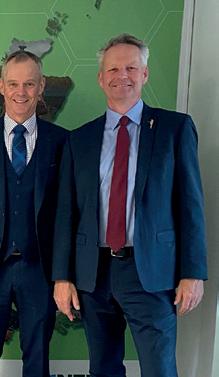
our largest trading partner, the EU remains an important policy dimension for members. Hosted by our British Agriculture Bureau (BAB) offi ce, the visit included cross-union discussions on issues such as inheritance tax and Defra’s farm profi tability review. Other key meetings focussed on the upcoming Sanitary and Phytosanitary measures (SPS) agreement, which will be the focus of a summit in London in May. SPS, which will be critical for reducing red-tape around trade, will be important for all of our members.




TLucy McGillivray Policy Manager
here have been a couple of changes in the policy team recently and I have taken on the Livestock and LFA Policy Manager role from Lisa who has moved into the role of Supply Chain Policy Manager.
Although I’ve been at the Union for almost three years, I thought I’d take the opportunity to reintroduce myself for those of you who don’t know me.
I’m from an upland livestock farm in Glenlivet, sitting at 1200ft above sea level. We have 160 Simmental cross suckler cows and 1250 Blackface and Scotch Mule sheep. Having grown up on the farm, I have good knowledge of both livestock and LFA, and experience of the challenges the sector faces.
However, I am enjoying getting
a deeper understanding of livestock and LFA policy, and all the diff erent workstreams within that. Whether it’s the declining herd, EID or LFA support to name a few, there is a lot to get stuck into. I have to thank Lisa for being so helpful in the handover process, which has made the transition as smooth as possible.
I am also working closely with Penny on animal health and welfare issues, where I’ve had to learn a lot about bluetongue in a short space of time! Disease issues are obviously of huge importance to the livestock sector, so it is crucial Penny and I work together with the Committee.
The fi rst few months in the new role has been a whirlwind but I have learnt a huge amount I’m looking forward to building on that in the coming months.
Finally, I also must thank my Chairs, Hugh and Peter, as well as Robert (VP), for all their help and support in getting me up-to-speed. I look forward to working with both the Committees this year.





Atrip down to Peterborough by train on the last day of April just confi rmed what we all know – as an industry we are so dependent on what the weather is doing. I had made the same journey on the same day last year and the sight of water standing in tramlines and patchy unhealthy crops all the way down through some real good arable areas has stuck with me. The contrast this year could not have been greater.
We have been working with SRUC as they have developed the dairy contract farming opportunity at Acrehead Farm at Dumfries. It is a really exciting opportunity for someone to develop in the dairy industry with built-in support and advice available from SRUC. This unique chance would allow the successful candidate to invest in skill-building, network with others on-site and have some opportunity to build capital. By the time you are reading this the selection process will be complete and we wish the successful candidate all the best for the future.
Following on from the Public Landowners Conference held at Ingliston at the end of March the development of this by SRUC is signifi cant in demonstrating what can be achieved on publicly owned land, providing opportunity to help develop the next generation of farmers.
Highland Show time is fast approaching and once again Allan Young and myself will be available on the NFU Scotland stand on the Thursday afternoon from 2pm to 4pm. Come along and say hello – we are always happy to discuss options and opportunities. We look forward to seeing you on the day. If you are not attending the show and would like a chat then check out our website (www.slms.scot) or don’t hesitate to contact us by email (slms@nfus.org.uk)
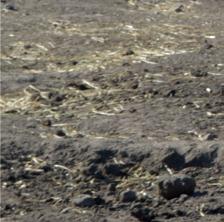











FPenny Middleton Policy Manager
arrowing crates, or rather the removal of them, is an interesting example of the tricky balance that exists within policy development. The Scottish pig sector recognises the pressure on them to move away from using farrowing crates to contain sows throughout lactation and they want offi cial guidance, but without legislation.
True freedom farrowing systems where the sow is entirely unrestrained throughout farrowing and lactation,




ARhianna Montgomery Policy Manager
s we head towards the busiest times of year, it’s important that our own safety and the safety of others does not become a lesser priority.
Many on farm accidents involve agricultural machinery whether that be during maintenance on farm or checks and adjustments in the field. To reduce the risk of serious injury or even death consider the follow messages to help keep you and others safe.
present concerns around piglet survival and handler safety. However, the sector is happy to start moving towards adaptive farrowing systems where the sow is only contained during farrowing, and for the fi rst few days following, before she is released. This helps protect the piglets during their fi rst vulnerable days and allows stockpersons to safely intervene to help the sow or piglets in this period if needed.
Producers are keen to start installing adaptive farrowing systems in refurbishments and replacement sheds but are unwilling/unable to invest in new systems until they have confi dence in the standards likely to be set for these systems in the future. There are producers needing to replace/refurbish,
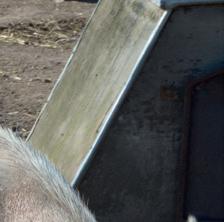


accommodation right now but without agreement they can’t start making plans.
Scottish Government have made a commitment to consult on the phasing out of traditional farrowing crates and we expect a consultation before the end of the year. The sector hopes the outcome of the consultation will be to set targets for the sector, rather than legislation, and provide standards for free/adaptive farrowing accommodation.
Consultation processes can be lengthy, and industry would like to see standards agreed now, allowing producers to start getting on with changes. If Government is unable to fi nalise standards without proper consultation, we ask that standards could be agreed now, with an acceptance that early adopters installing adaptive farrowing systems to that standard be granted grandfather rights, exempting their systems under any new standard.
With a busy time ahead - Safety a priority
• Ensure that plant and equipment are well maintained and in good order prior to use.
• Before approaching any moving parts, or starting any checks or maintenance work, follow the safe stop procedure – handbrake on, controls in neutral, engine off and keys out.
• Ensure that any maintenance or repairs are carried out by someone who has the necessary skills, experience and knowledge to carry out the work safely.
• Before carrying out maintenance, ensure that stored energy is released e.g. in springs, hydraulics or compressors, that could cause parts of the machine to move.
• Make sure that any parts of the machine or equipment that could fall or move are secured.
• Have procedures in place for anyone to report damaged or faulty equipment.




Lisa Hislop Policy Manager
In the last edition of Scottish Farming Leader, I noted our commitment to continuing the ShelfWatch initiative for a second year. In addition to carrying out four full phases across the fresh produce aisles of the big eight retailers, we will be running a Soft Fruit focus over the summer to best refl ect the retailers’ support for the horticulture sector during peak season, monitoring imports closely.
The data and insight we gather from ShelfWatch helps to inform and support the priorities for our wider supply chain strategy and individual commodity committee priorities. This is particularly invaluable information as we continue to work through other workstreams which continue to impact






profi tability such as the impact of inputs, labour availability and Fair Dealing Obligations.
As we approach the summer, we will continue to engage the buying teams across retailers to underline our key retailer asks;
1. Sourcing: Adopt a ‘Scottish First’ policy, prioritising Scottish produce across all commodities and reducing reliance on imports.
2. Promotion: Development of a programme of promotional campaigns and activity to champion Scottish produce in stores and online, including the creation of a ‘Scottish Shop’ for online customers and supporting industry initiatives.
3. Fairness: New commitments to ensure fairness in the supply chain and specifi cally, to end the practice of excessive discounting which undermines the value of food, along with commitments to ensure pricing refl ects the true cost of production.
4. Labelling: Commit to reforming labelling practices to ensure clearer on-pack country-of-origin labelling so that consumers understand where their food comes from.

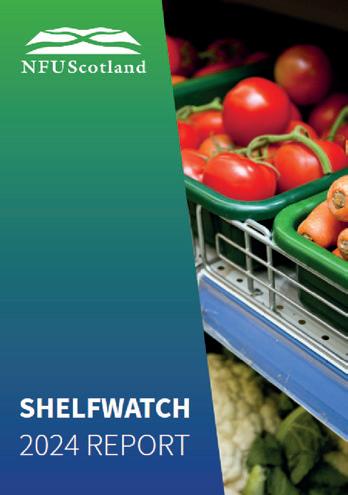

5. In-Store Branding: End the co-mingling of Scottish and imported products, through transparent and clear signage and in-store branding.
These asks will require collaboration across all stakeholders, some will need heavy lifting form ourselves, while others are very much within the gift of retailers to revisit their processes to better support Scottish and British produce.




















































































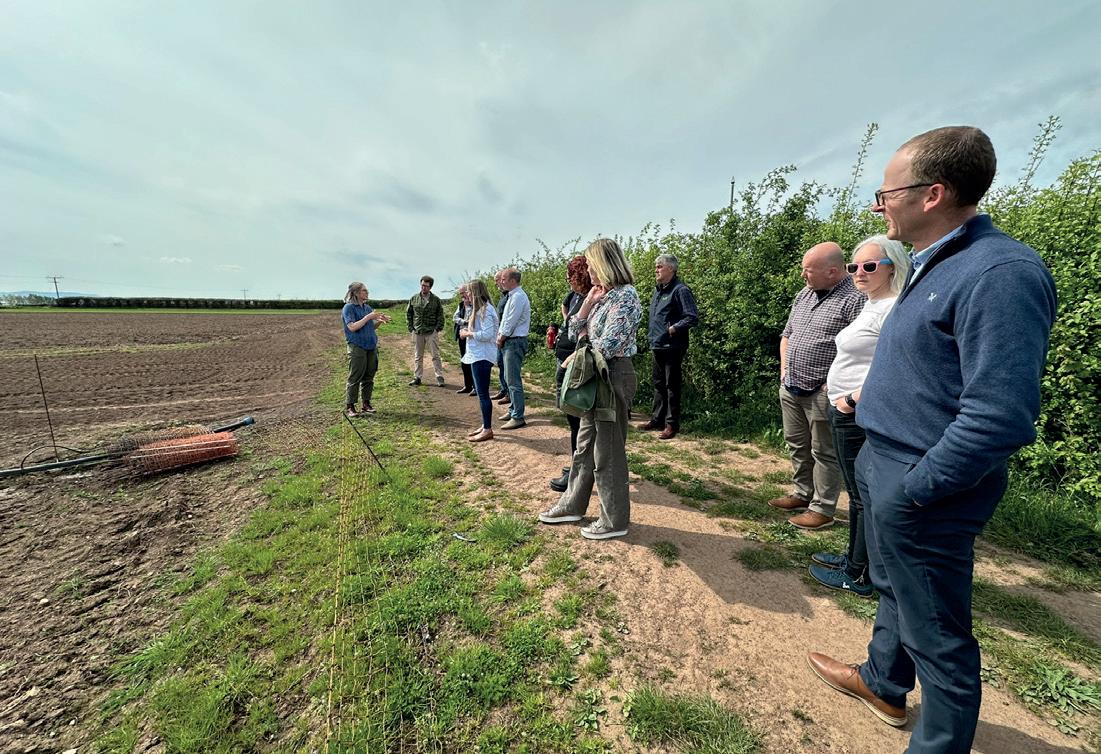




he Voluntary Initiative in Scotland held its first face-to-face event for the year for all current Scottish VI champions and the VI group members. They all came together at the James Hutton Institute, Dundee for what was a very positive day.
The day began with a presentation from Tim George, Director of the International Barley Hub (IBH), who gave an overview of the work undertaken
by the IBH and the scientific progress being made in the field of plant genetics, computational mapping and future resilience solutions. Neal Evans updated the group on the scope of the work undertaken by the VI on both a UK and Scottish level.
Current VI Activity has four key strategy areas;
1) Integrated Pest Management (IPM)
2) Minimising the risks of pesticides to surface and ground water
3) Minimising risks and impacts of pesticides to wildlife
4) Training and Education

To achieve this, there are collaborative links with other organisations like Farming and Water Scotland, BeeConnected, as well as local and national authorities.
Amy Geddes, focussed on Scottish specific activity, and showcasing how the approach advocated by the group actually plays out on farm. The wild plants and biodiversity on show on her farm is certainly impressive and shows how this approach can work in tandem with a profi table farm business.
To round off our morning, we had Anna Davies from Scene and Herd, deliver ‘confidence in communication’ training focussing on the communication of key messages of integrated pest management and the sustainable use of pesticides.
In the afternoon we had a session from Lorena Rangel, a JHI scientist who focusses her work on IPM. She spoke about her work looking at the alternatives to conventional pesticides and took the group a tour of the field trial plots used for the studies.
In the days on online meetings coming together in the inspiring setting of the JHI, is hugely valuable. Thanks to all that participated and hopefully we’ve set in motion plans for cool things to come.
Whether it’s drones mapping your fields or precision equipment driving higher yields, your technology is key to success. Trust NFU Mutual to help keep your farm running smoothly with insurance solutions designed for the modern farmer.
Scan the QR code to find out more, or speak to your local NFU Mutual Agent.




Bob Carruth Policy Manager
After more than a decade of campaigning by NFU Scotland and other UK farming Unions, calling out unfair practices in the dairy supply chain, new legislation on dairy contracts is close to full implementation.
The Fair Dealings Obligations (Milk) Regulations 2024 (FDOM24) came into force on the 9 July 2024. From that date, the new regulations applied to all new contracts. For existing agreements, there is a transition period that ends on 9 July 2025.
Unfortunately, amendments to existing milk contracts emerged from some milk buyers north and south of


the Border in late April and early May, ahead of the 9 July date, causing a great deal of anger and frustration. These amendments gave producers too short a timescale to reply, applied inappropriate pressure on producers to sign up or face penalties and presented no opportunity to seek legal opinion in keeping with the guidance that we have been providing.
We and others have raised concerns directly with the offi ce of the Agricultural Supply Chain Adjudicator (ASCA), the body charged with monitoring the introduction of the new rules. These must establish transparency and accountability across the dairy supply chain by stopping contract changes being imposed without agreement and those that fl out the regulations should be punished.
ASCA has a dedicated mailbox to raise concerns about milk contracts in confi dence and we encourage
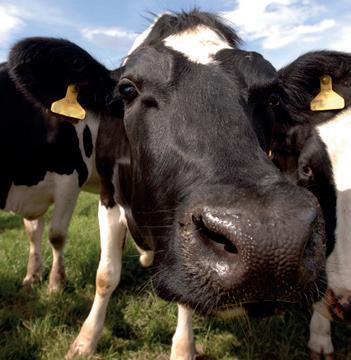
dairy farmers to use this. Information provided will remain confi dential, and you can also remain anonymous. The new complaints email address mailbox is: ASCA-in-confi dence@defra.gov. uk. Guidance on milk contracts can be found at in the Dairy Policy section of our website nfus.org.uk
The Royal Highland Show is just around the corner! Join me at the NFU Scotland Marquee on Friday, 20 June, from 2–4pm for a dairy drop-in session with NFU Scotland and the Scottish Dairy Hub. See you there!






















KIOTI UK IS ATTENDING THE HIGHLAND SHOW
STAND NO A3(A)


























19TH - 22ND JUNE 2025

















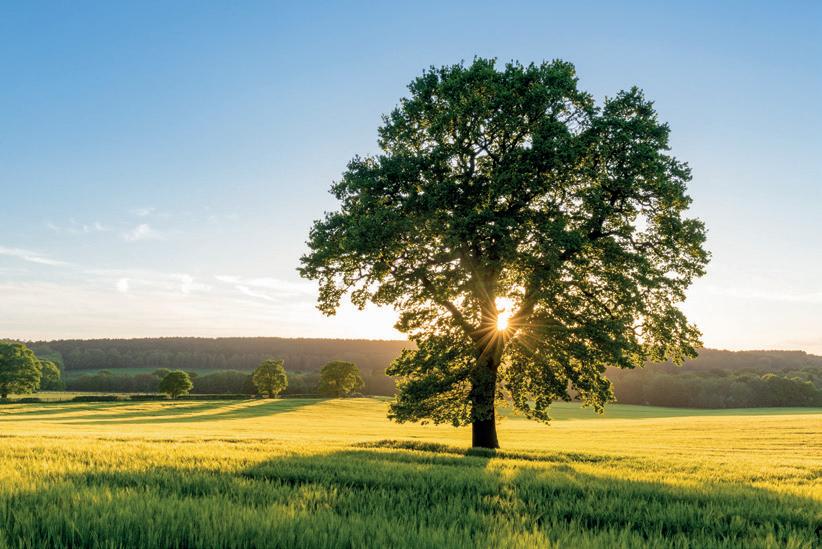






WJonnie Hall Director of Policy
e’re fast approaching the fi rst anniversary of the passing of the Agricultural and Rural Communities (Scotland) Act 2024. This framework Act created the necessary powers to replace existing and familiar CAP schemes. These will be replaced with a new four-tiered framework of ‘conditional’ support from 2027.
The policy intention is clear, namely the delivery of fi ve outcomes:
• High Quality Food Production
• Thriving Agricultural Businesses
• Climate Change Mitigation and Adaptation
• Nature Restoration
• A Just Transition
However, the nagging and constant question in my head is how intentions translate into actions and measures (i.e.‘schemes’) and how do we get there?
The Scottish Government’s Agricultural Reform Route Map sets out signifi cant milestones over coming years. With every milestone, farms and crofts across Scotland will have to adapt and embrace change.
That’s fi ne, but milestones are not the destination – and they don’t tell us about the twists and turns in the road we must navigate safely.
While the new four-tiered framework for agricultural support will not be fully implemented until 2027 at the earliest, some requirements of the transition have come into eff ect from 2025 –such as the Whole Farm Plan (WFP) requirements and the calving interval condition under the Scottish Suckler Beef Support Scheme (SSBSS).
Further changes will be made in 2026 and 2027 as existing schemes transition into the new four-tiered framework.
In 2026, the Basic Payment Scheme (BPS) will consolidate as Tier 1 (Base) payments, while Tier 2 (Enhanced) payments will be introduced based on the existing Greening delivery model.
The new Tier 3 (Elective) and Tier 4 (Complementary) elements of support
should follow in 2027 to incorporate agri-environment measures, forestry grants and targeted capital grants, as well as farm advisory services and professional development.
By 2028, it’s likely that the transition to a replacement for the Less Favoured Areas Support Scheme (LFASS) will begin along with the incorporation of coupled support as direct support within Tiers 1 and 2.
What is clear to me, and what we must get right from the outset, is how we re-shape and develop both BPS and Greening as the new building blocks of direct support – albeit they’ll be labelled Tiers 1 and 2.
As area or land-based payments, even with any and all conditions attached, they are the foundations of future support.
With the policy intentions shifting towards nature restoration, climate resilience, and active land management, alongside high-quality food production, we must get this right from 2026 onwards. But what does ‘right’ look like?
Initially, it’ll be about ‘continuation with conditions’.
BPS, or Tier 1, will likely remain
the foundation of direct payments but with increased conditionality tied to sustainability – for example, we know that by 2028 full compliance with a broad WFP will be required and we may see updated cross-compliance to reflect Scotland-specific climate and biodiversity ambitions.
In addition, Greening will transition into Tier 2 Enhanced Support. The current Greening payment linked to ecological focus areas (EFAs) will be developed further for 2026 and beyond.
But there’s still something bothering me. For 2026 and 2027 at least, we will still be delivering most direct support, including LFASS, through what will remain relatively blunt and unchanged area-based schemes – other than a few additional requirements.
If we want to target direct support to those, doing the right thing in the right place to deliver the right outcome, then exclusively focusing on extra conditions being attached to existing schemes –albeit we rename them – is not going to cut it.
We also need to change the building blocks of support – i.e. we must re-think how we deliver area-based support.
Since 2015, we’ve operated a fixed BPS and Greening model based on three payment regions, namely
• Region 1 - arable land, including temporary grass, and permanent grass
• Region 2 - rough grazing with LFASS grazing categories B, C or D
• Region 3 - rough grazing with LFASS grazing category A
There’s something like 1.7 million Region 1 entitlements, of which about 550,000 are covered by arable land with about 50,000 in temporary grass. That means over a million hectares of permanent grass, the backbone of our livestock sectors, are in Region 1.
Region 1 receives 87 per cent of our total annual BPS and Greening budget of £424 million but, with around 800,000 hectares in Region 2 and 1.4 million hectares in Region 3, it represents about 44 percent of claimed area.
Going forward, there are scores of possible ways that Regions could be recast to better target direct support and any consideration must also include the likes of coupled support and less favoured areas support.

One obvious example could be to keep three payment regions but divide them on an arable (including temporary grass), permanent grassland and rough grazing basis – leaving about 600,000 hectares, 1.1 million hectares, and 2.2 million hectares in each, respectively.
Before I might be accused of treachery or heresy, just as important, if not more so, would then be the allocation of the BPS and Greening (or Tiers 1 and 2 budget) across any new payment regions set up.
The split of funding could be very different, allowing a better focus on the outcomes of high-quality food production together with climate actions and nature restoration –different land types (or payment regions) have a different capacity to deliver on each and all three outcomes.
Of course, the bigger question then follows about what’s the budget we hope to split in the first place? The reality is that it may well be significantly less than the current £424 millionmaking the choices even more crucial, and difficult.
If we were to go down any such route, other fundamental questions come into play. What’s the purpose of coupled support? How do we ensure all claimed areas are actively managed? Those two questions could be the answers to each other!
And then there’s the clear need for additional support for ‘disadvantaged areas’ support as an effective replacement for LFASS, not least in the context of underpinning our rural communities.
The questions keep coming. As and when the building blocks of support are reviewed and/or changed, to effectively target what will be limited support, we must also think things like ‘redistribution’ payments – that’s the concept of front-loading payments for the first however many hectares.
That could see the weighting of support in favour of smaller units to offset any disproportionate costs of increasing conditionality.
Under the new Tiers 1 and 2, I do think we will see a more refined approach to payment regions as well as an increase in the conditions attached.
But let’s not kick back or resist. We need to own this. We need to ensure we get this right for all agricultural businesses – regardless of size, type or location.
We do need a shift toward activity or outcome-based payments instead of land-type-only classifications if we’re to recognise and reward those delivering the outcomes we’ve been tasked to deliver. The Scottish Government must then back that up with sufficient and targeted funding support.





The countdown is on until the 2025 Royal Highland Show comes to life across four jam-packed days at the Royal Highland

Centre in Ingliston, Edinburgh, bringing the very best in agriculture, Scottish food and drink and entertainment.
As the UK’s largest agricultural Show and biggest fundraising event for RHASS (the Royal Highland & Agricultural Society of Scotland), the week of the Show sees the event site








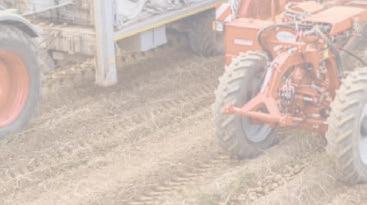
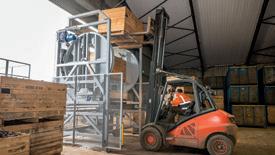

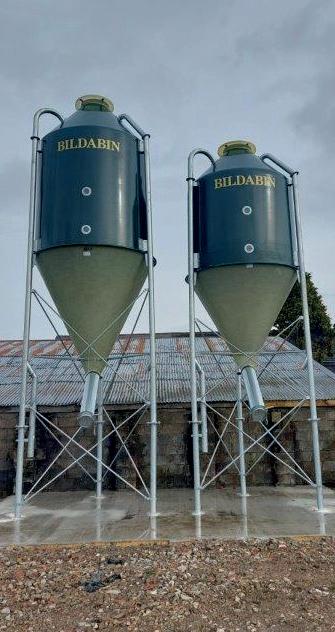


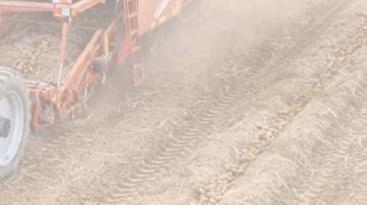
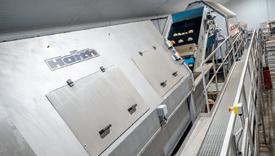

















become the sixth-largest population centre in Scotland, bigger than Paisley and Dunfermline, with over 220,000 people expected to attend.
Education and learning about agriculture and rural life for families remain at the heart of the Show with children under 15 able to attend for free. With an extended family off er on the Sunday of this year’s event, there’ll be even more for young families to explore. The introduction of the Mini Rovers running alongside the Land Rover Experience will allow kids to get behind the wheel and take on their very own off -road adventure course, just like the grown-ups.


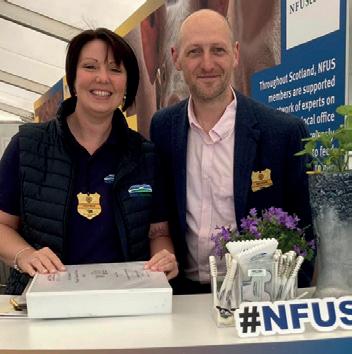
At the RHET Discovery Centre, children can learn about everything from robotic milking and fi shing facts to peatlands and butter-making. In celebration of RHET’s Year of Dairy, which shines a spotlight on one of Scotland’s most important and dynamic sectors, from championship competitions in milk, cream, butter, cheese and Scottish ice cream, the Show team, in partnership with RHET, are hosting two design competitions for Scotland’s primary and secondary pupils to design a rosette and milk bottle, with the
winning designs shown and presented at this year’s Show.
A host of activities and hands-on experiences are on off er across the show including in the dedicated kid zone located in Countryside Area.
This year’s Show also shines a spotlight on the ground-breaking progress within the industry through the newly refreshed RHASS Innovation Awards – the longest-running competition of its kind. For 2025, the awards see the introduction of dedicated categories, allowing visitors to better

recognise advancements across all areas of the rural sector including Mechanical and Engineering, Digital and Management Solutions, and Crop and Animal Feed Advancement – all celebrating the trail-blazing ideas shaping the future of farming.
RHASS’ 2025 Presidential Initiative,
which is this year led by the Strathclyde region, is focusing on the innovative solutions the farming industry is developing to tackle the single greatest threat to its future – meeting Scotland’s target of being net-zero by 2045. This will form the focus on the Presidential team’s stand at the Show.


The Royal Highland Hoolie is back for its third year and will feature live folk and country music acts performing on the evenings of Friday 20 and Saturday 21 June, including Trail West, The Whistlin’ Donkeys and Nathan Carter.
All this aside, the Royal Highland Show remains rooted in tradition, with the country’s fi nest livestock and horses competing for esteemed titles, elite shearers going head-to-head, and sparks fl ying in the heat of the farriery competition. The Grand Parade will continue to be a weekend highlight.
Scotland’s Larder is a must-see destination for all Foodies and a great place to meet local producers, taste the best of Scottish produce and discover artisan off erings from across the UK. Show-goers will be able to browse aisles full of delicacies to fi nd everything from Scotland’s juicy strawberries and varied cheeses to full-bodied Whiskies and fruity Gins. The Food for Thought Cookery Theatre, within Scotland’s Larder this year, will be full of entertaining cookery demonstrations from award-winning chefs, alongside conversations and Q&As with food writers, cooks and producers.
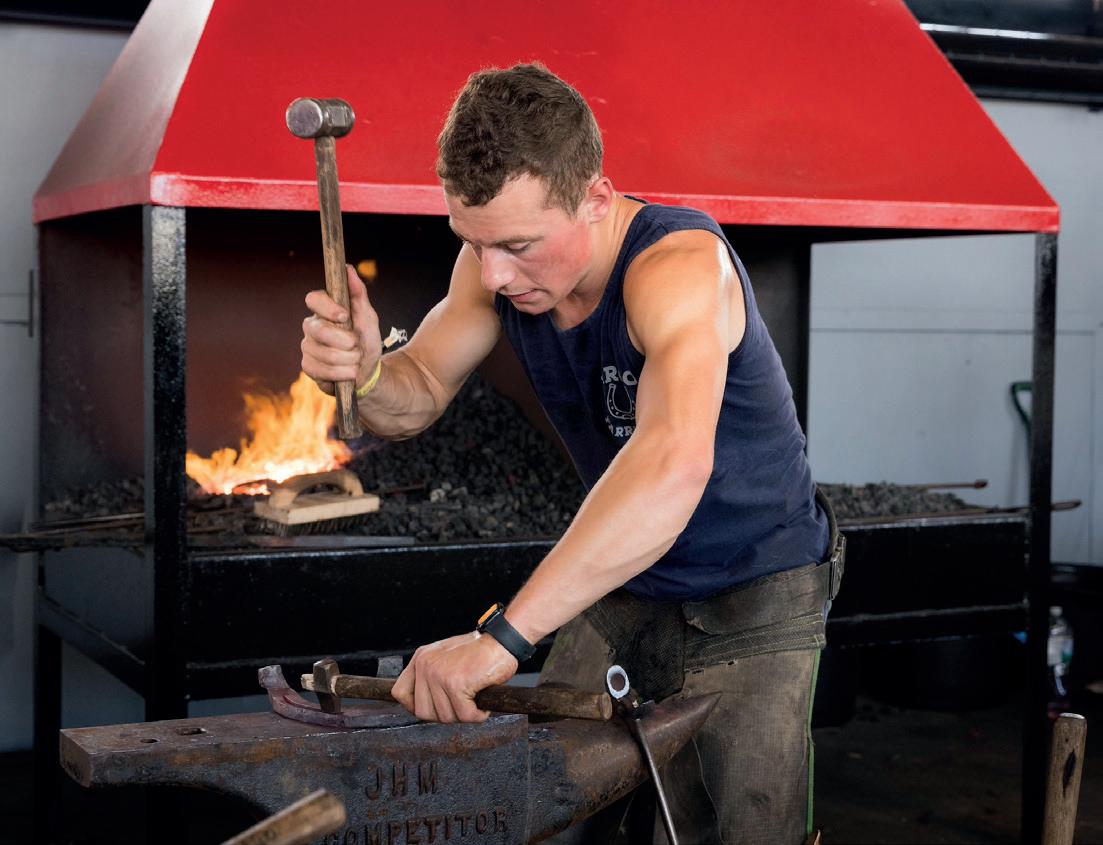









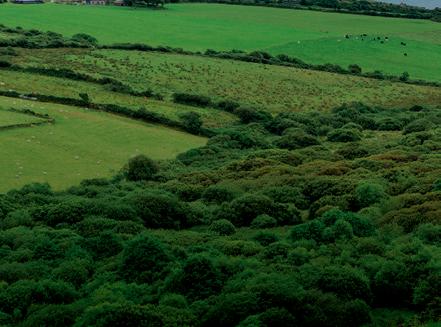

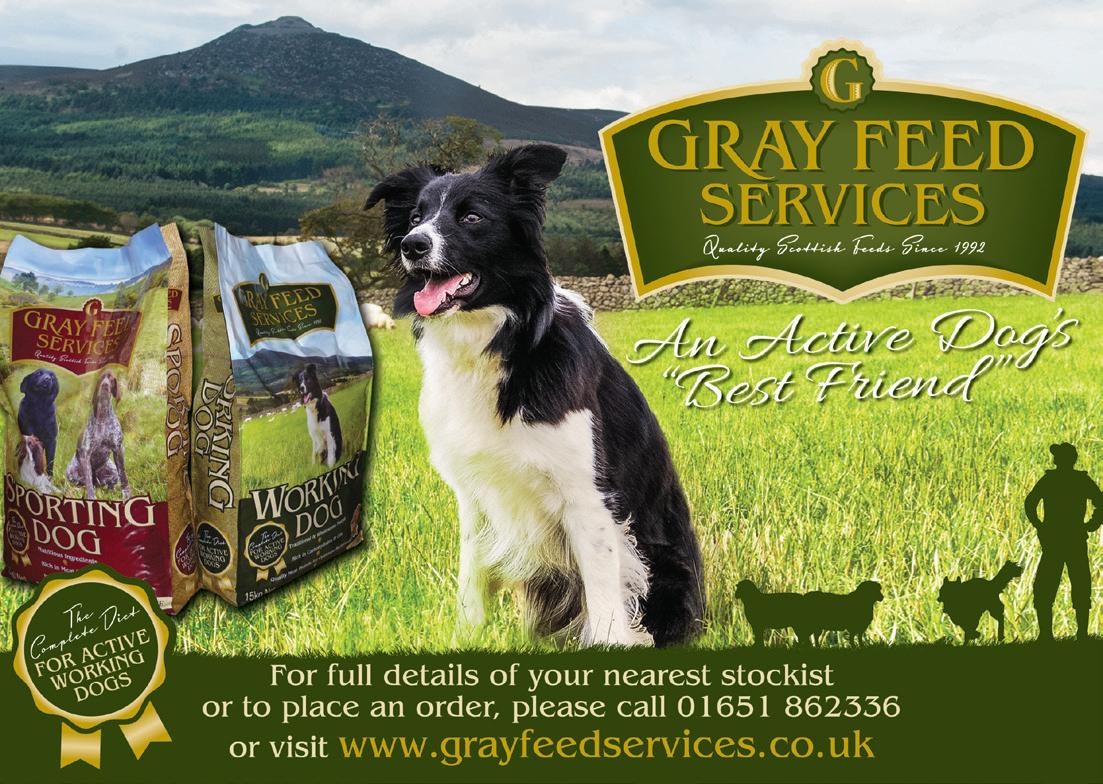

James Logan, Chair of RHASS, said:
“The Royal Highland Show is a unique showcase, and highlights the breadth and depth of the rural sector. Whether it’s livestock and equine excellence, pole-climbing and axe-throwing, or local food and drink in Scotland’s Larder and the Food for Thought Theatre, there’s something for everyone.
“The four-day celebration of Scotland’s rich agricultural heritage, our vibrant rural communities, and the extraordinary people who drive this vital sector forward is a powerful reminder of the strength, spirit, and scale of our sector, and a chance to meet friends from far and wide.
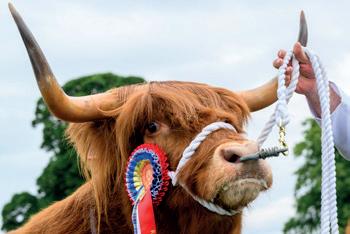



“More than a Show, the event is a platform for progress, the business done here, the connections made, and the stories shared in playing a vital role in shaping Scotland’s rural economy.
“We hope you enjoy everything the Show has to off er – and of course, don’t miss the Royal Highland Hoolie, a brilliant way to round off your day with a tune and a boogie. Thank you for your continued support and have a fantastic Royal Highland Show 2025!”
For ticket information please visit www.royalhighlandshow.org .





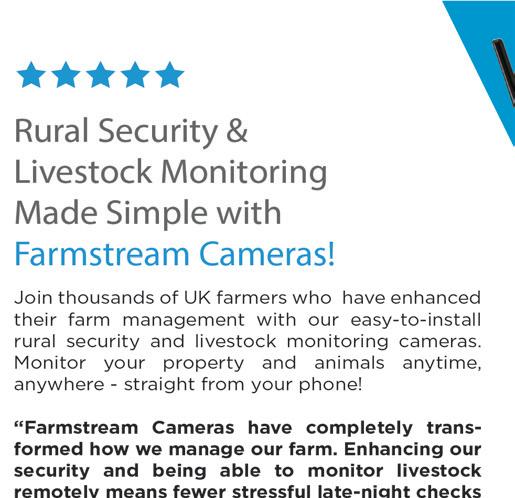
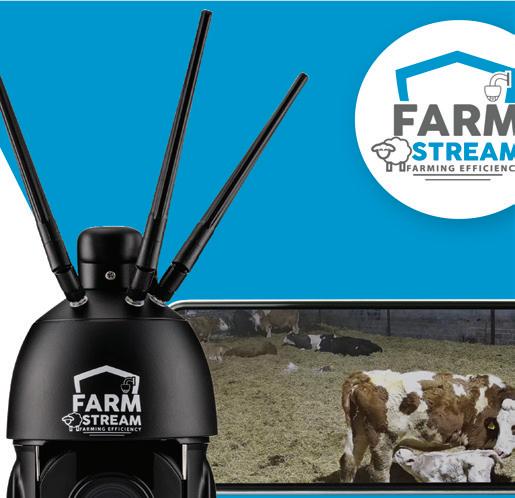





















































NFU Scotland staff, presidential team and Board members will be on-hand to provide a warm welcome and are looking forward to meeting members at the NFU Scotland and NFU Mutual marquee throughout the four days of the Show (19-22 June). We are again located in


a prime position east of the main show ring. You’ll fi nd us on Avenue O and opposite the RHASS members’ pavilion.
We hope you will drop in for a cup of tea/coff ee, sweet treat and chat.
Representatives from both the Scottish Dairy Hub and The Scottish Land Matching Service will be on the





stand and invite you to drop-in to the marquee to meet them between the following times:
Scottish Land Matching Service
Thursday 19 from 2pm to 4pm
Scottish Dairy Hub
Friday 20 June from 2pm to 4pm
We look forward to seeing you at the Royal Highland Show 2025!
Please note while there may be some activity taking place within the marquee at times, the stand will remain open throughout for members queries and hospitality. As ever, we will do our best to accommodate everyone and any disturbance will be kept to a minimum.
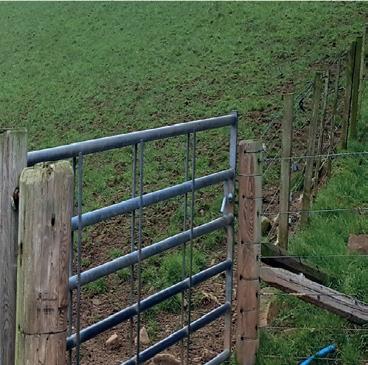



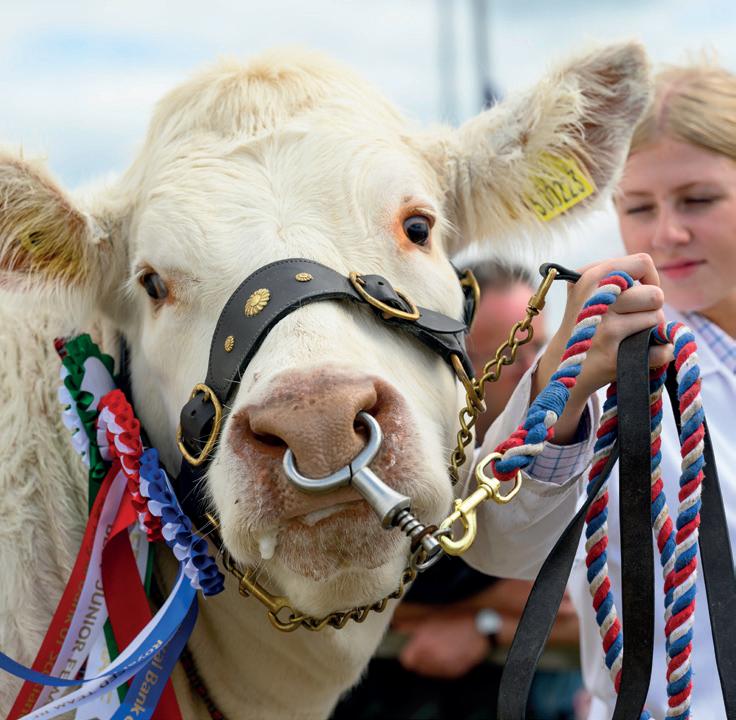
All tickets, including car parking for the Royal Highland Show must be purchased from RHASS online in advance of the event for each nominated day. Once purchased, tickets will be sent as a PDF* to the email address provided.
Important: you will receive one PDF ticket, which will be scanned to grant you access on all selected days. (*No more paper tickets issued by post.)
There are no entry or parking tickets available to purchase at the gate, so we would encourage you to please plan ahead of time to avoid disappointment and purchase all relevant tickets required for the days you wish to attend the show.
For tickets and more information visit www.royalhighlandshow.org







































































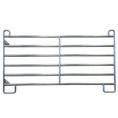










COMMERCIALMETALBUNDEDFUEL TANKS

REDUCED PRICES
1250 LITRE - £2,250
2500 LITRE - £2,795
5000 LITRE - £3,765
7500 LITRE - £5,000
10000 LITRE - £6,150
SINGLE PHASE, 3.5HP, 1800PSI, 11LPM.. £2,800
SINGLE PHASE, 5HP, 2200PSI, 14LPM..... £3,025
THREE PHASE, 7.5HP, 2700PSI, 25LPM... £2,950
THREE PHASE, 10HP, 3000PSI, 18LPM.... £3,300
PETROL, 16HP, 3625PSI, 25 LPM ..............£6,075
COMMERCIALMETAL BUNDEDFUEL TANKS STANDARDSPECIFICATIONS
•3mmBritishsteel
•230 volt /60litreper min pump
•6m deliveryhose
•Water &particulate filter
•Mechanical flowmetre
•Autoshutoffnozzle
•Contentsgauge
•Deadlockwith 2keys
•LiftingEyes
•Steel box sectionacrossthe base
forforkliftaccess andtoraisethe
tankfromthe floor
•Paintedgreenasstandard(Anti -corrosionpaint)
•BS799,OFST200 & SSAFOcompliant

HOT WATERPRESSURE
WASHERSSTANDARD SPECIFICATIONS
•Heavy dutygalvanised steelcabinet
•Hawk pump
•Mainswaterfeedorwillsuckfrom bowser /IBC
•Ravelelectricmotor /Briggs &Stratton
petrolengine
• 10 or20metreshighpressurehose
•Complete lance
•8 metresofelectric cable
•Diesel firedboilercomplete with 20litrefueltank
•20litredetergenttank
•Maxtemp80Corcanberunas a cold pressurewasher
•Pressure can beregulatedfrom maxto500PSI
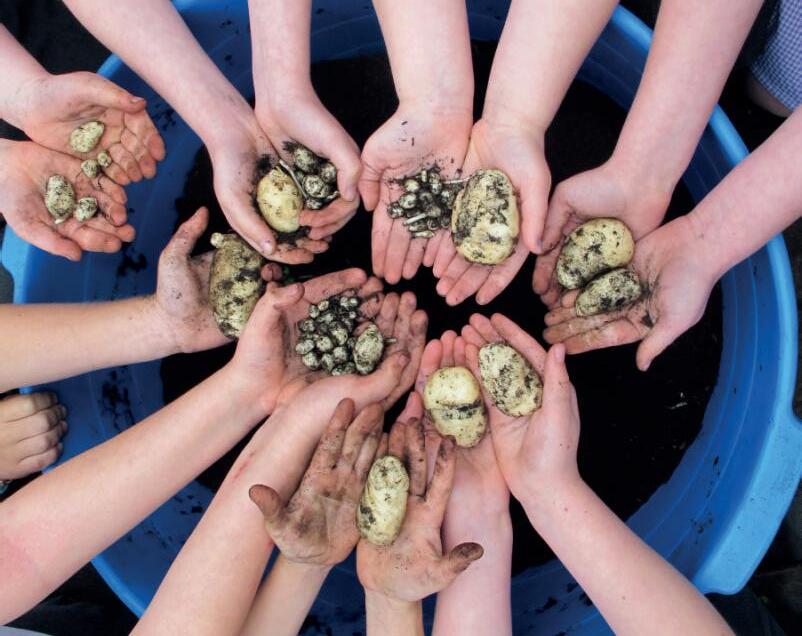
local young farmers’ district, reporting back and encouraging fellow members to get involved and volunteer with RHET.
The Royal Highland Education Trust (RHET) has recently appointed its latest cohort of Young Ambassadors, to help raise awareness about the importance of education around food, farming, and the countryside, supporting the wider work of RHET.
The RHET Ambassadors, all active members of the Scottish Association of Young Farmers Clubs (SAYFC), have a place on their local RHET committee and are involved in volunteering at and planning for events, fundraising and assisting with RHET projects. They also provide an important connection between the RHET committee and their
Carole Brunton (RHET Ambassador Programme Lead) said: “The RHET Ambassador programme creates a pathway for young farmers to become educators and advocates for Scottish agriculture. The focus on educating 5–18-year-olds about food, farming and the countryside through people who are actively involved in the sector brings authenticity to the learning experience.

we have launched a new mentorship scheme in collaboration with the Bank of Scotland and Women in Agriculture Scotland. As part of this initiative, we’re off ering our ambassadors the opportunity to be matched with a mentor who can support their personal and professional development. These mentors come from a wide range of organisations and bring a wealth of experience across various fi elds.
“The initiative is built on long-term thinking and investment - encouraging these young farmers to stay involved with RHET and other agricultural organisations like NFU Scotland even after their time with SAYFC ends.
“We’ve got a great group of Ambassadors who will be given some excellent learning opportunities alongside sharing and demonstrating their practical skills. For example,
Farmers use maths on the farm on a daily basis. Counting livestock, working out how much to feed sheep, calculating how much fertiliser to use and working out lambing percentages are all examples of ways in which maths is used in a farming environment.
“We will also encourage our ambassadors to raise awareness about the NFU Scotland SAYFC membership which is yet another fabulous opportunity for SAYFC members to get more knowledge about the organisation, access to its resources and access to members’ benefi ts. The are so many amazing opportunities for Scotland’s young farmers – and the sector is eager to help them grow as individuals and shape its and their future simultaneously.”
Some of the maths they use is simple - like counting livestock whilst other calculations involve a bit more thought and calculation. The really hard calculations often have online tools to help formulate the answers.

RHET Highland
Living on her family farm in Caithness, Bethany helps with 350 sheep, 130 suckler cattle, and runs her own Shetland pony stud. She is secretary of both Forss YFC and Caithness District YFC and enjoys competing in agricultural events.


RNCI Aberdeen City, Aberdeenshire & Moray
From a mixed farm near Turriff, Vicki studied agriculture at SRUC and works as an agricultural technician. An active member of Turriff YFC, she enjoys showing livestock, creating bale art, and playing netball.


RNCI Aberdeen City, Aberdeenshire, Moray
A primary teaching student, Elizabeth lives on a family farm in Aberdeenshire and enjoys lambing season. She is eager to bring her farming knowledge into the classroom while volunteering with RHET.

RHET Angus
Originally from Forfar, Beth holds a degree in Rural Business Management and now works as a graduate rural surveyor. She has experience across Scotland’s rural sector and enjoys stock judging, sports, and social events with Forfar JAC.

RHET Angus
A primary school teacher and member of Forfar JAC, Lois grew up on her family farm and started her own Aberdeen Angus herd. Her passion for teaching and agriculture led her to support RHET and educate young people about farming.








RHET Perth & Kinross
Originally from Ireland, Sophie studied agriculture before moving to Scotland, where she now works as an assistant manager at a dairy farm near Dundee. She is Vice-Chair of Strathmore JAC and excited to share her expertise through RHET.
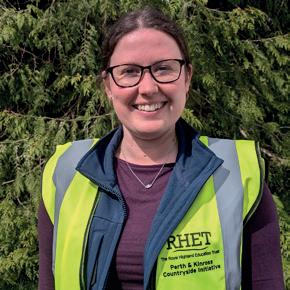
RHET Perth & Kinross
Originally from Bathgate, Leigh now lives in Perthshire and works in Rural Services while also driving lorries. Chair of Banks of Tay YFC, she enjoys hiking, horse riding and helping with agricultural shows, aiming to encourage non-farming backgrounds into the industry.

RHET Fife
Raised on her family’s beef and sheep farm, Eilidh is the Secretary of West Fife YFC. A graduate in Rural Business Management, she now works as a Graduate Rural Surveyor and is eager to educate young people about food and farming.

RHET Forth Valley
From a dairy and arable farm, Emily is a final-year Rural Business Management student and Assistant Secretary of Callander YFC. She has raised funds for SAYFC’s Big Build campaign and is excited to inspire young minds about farming.

RHET Dumbarton, Lomond & Renfrew
Isla is a member of West Renfrew Club. She grew up on a mixed livestock farm and has been a member of SAYFC since she was 14. Isla is looking forward to helping educate young people about where their food comes from when she returns from her travels in Australia.

RHET Dumbarton, Lomond, Renfrew, Argyll & Bute
An ASN Primary Teacher involved in Young Farmers for 11 years, Ellis wants to strengthen the link between RHET and ASN establishments, ensuring all children understand where food comes from.


Jennifer Hewitt
RHET Clyde
A Specialist Physiotherapist with the NHS, Jennifer has a strong farming background and is actively involved in Lanark YFC. She is passionate about promoting agriculture to younger generations through RHET.
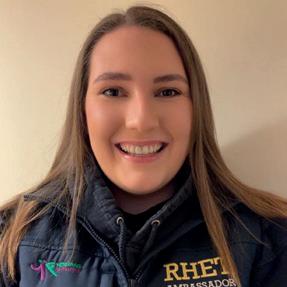
RHET Clyde
Raised on a dairy, beef, and sheep farm, Amy has been a dedicated member of Carluke YFC for 11 years.
A long-time RHET volunteer, she is committed to carrying on her grandfather’s enthusiasm for educating others about farming.
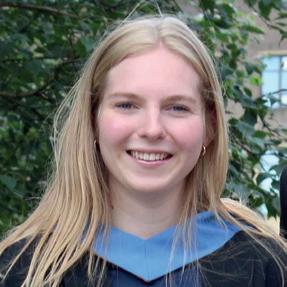
RHET Ayrshire & Arran
An assistant scientist with an MSc in Environmental Engineering, Jean is active in Beith & District YFC and the Ayrshire County Rally. She enjoys training for a half marathon, swimming, and helping on her family farm.








RHET Ayrshire & Arran
A self-employed worker on two dairy farms near Kilmarnock, Alison is a former treasurer of Kilmaurs & District YFC. She has traveled to New Zealand and Thailand to explore farming, enjoys rugby, and loves educating others about agriculture.


RHET Dumfries & Galloway
A second-year Food Business Management student at Harper Adams University, Tammy has been actively involved in Machars Young Farmers for five years. She is passionate about educating young people on opportunities in rural communities.
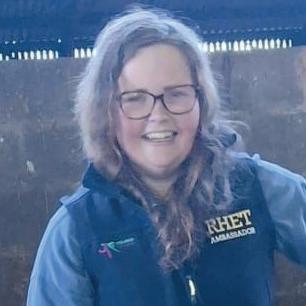
RHET Dumfries & Galloway
A herds person and calf rearer on a dairy farm, Louise is a member of Lower Nithsdale Young Farmers. She loves talking to children about farming and is keen to inspire curiosity about food production.

RHET Scottish Borders
A long-time member of Peeblesshire JAC and Young Farmers, Emma is involved in various committees and advocates for mental health awareness in farming. She works as an Early Years Practitioner and enjoys educating children about agriculture.




REGIONAL MANAGER
Sheena Foster 07789 796 582
sheena.foster @nfus.org.uk
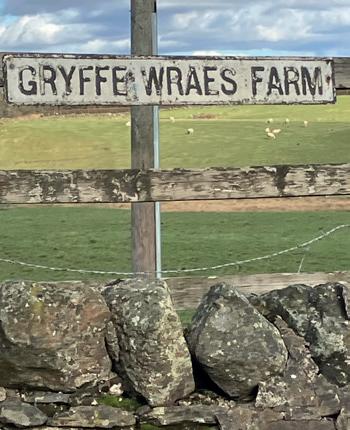
Over two busy and rewarding days, Renfrewshire member Willie Harper welcomed pupils from across Paisley to his farm, Gryff ee Wraes, as part of a RHET (Royal Highland Education Trust) visit giving youngsters a hands-on glimpse into life on a working farm. With help on hand from familiar faces from the Region, the visit brought the sights, sounds and smells of rural Scotland to life for children who might never have set foot on a farm before. From learning where their food comes from to meeting livestock and seeing farm machinery up close, the visit off ered a valuable experience that goes far beyond the classroom.

NFU Scotland regional representatives have been out on the ground in recent weeks, keeping up important conversations with local MPs to ensure the concerns of farmers are being heard and understood.
Falkirk MP Euan Stainbank recently visited Branch Chair Martin Denholm at his farm for a productive discussion around some of the key challenges facing the sector. Topics covered included Inheritance Tax, ongoing labour shortages, uncertainty around future policy and the resulting diffi culty farmers are facing when it comes to long-term planning.



At the same time, Regional Chair Mark Donald, Vice-Chair Rona Nicolson and Board Member David Bryce held a follow-up meeting with MP Chris Kane. This meeting built on discussions held before Christmas and provided another opportunity to highlight the pressures being felt in the sector, while continuing the push for clarity and practical support.
These meetings are part of a wider eff ort to strengthen political relationships and keep agriculture fi rmly on the agenda during what is a particularly uncertain time for the industry.

ARGYLL AND ISLANDS


NREGIONAL MANAGER
Lucy Sumsion
07787 434 104 lucy.sumsion@nfus.org.uk
FU Scotland is working closely with CalMac to make it easier for farmers and crofters to make a booking for a pickup and livestock trailer. While the longer-term aspiration would be to have an option to book online, in the interim CalMac are trialling a dedicated telephone line for making bookings to and from Arran and Mull.
The idea behind the trial is that should a customer be unable to contact the port in the fi rst instance, they have another option without having to make a, potentially lengthy, trip to their local port offi ce. The trial will run until Friday 29 August and it is hoped that this will allow CalMac to capture suffi cient data about usage before, potentially, expanding the facility to the wider network.
For the period of the trial, if members are unable to reach their local port to make a booking, they can contact the following designated hotline numbers:
Arran - 01475 650178
Mull - 01475 650174
Can you help us update your membership record?
We currently have approx. 170 members in the Argyll & the Islands region who we do not have an email for. If we don’t not have an email for you, we send all correspondence using Royal Mail. You could receive this much quicker if we have your email. We also use mobile numbers to send out text messages.
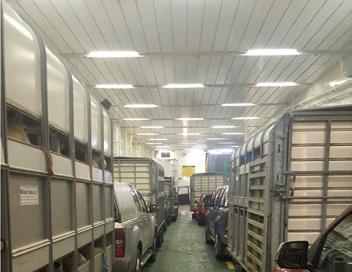

Let us help you keep up-to-date with all the news and information from NFU Scotland by providing a current email address and mobile number. Please call us on 0131 472 4000 or email info@nfus.org.uk to provide your email and mobile number. It would be useful if you can quote your NFU Scotland membership number. Thank you for your help.




REGIONAL MANAGER
Holly Fitsimmons
07775 838 926
holly.fitzsimmons @nfus.org.uk

Some Ayrshire members recently headed to Holyrood to attend NFU Scotland’s Sustainability in Scottish Agriculture Parliamentary Reception hosted by Carrick, Cumnock and Doon Valley MSP Elena Whitham. The event was a great opportunity for farmers from across Scotland to
engage directly with over 25 MSPs and other industry stakeholders. Despite the many challenges facing the industry, the optimism shown by members for positive change and their enthusiasm and commitment to the industry is inspiring. Members in attendance from Ayrshire were Regional Chair John Kerr, North

It was great to have VP Robert Neill attend the show where he caught up with the team, members, SAYFC and Ayrshire Partnership Against Rural Crime (APARC). Dairy policy Manager Bob Carruth also attended with the Scottish Dairy Hub.

Ayrshire and Cumbrae Branch ViceChair Gordon Walker, Regional Board Invitee Willie Campbell, Ayrshire Next Generation Committee Representative and SAYFC Agri & Rural Aff airs Chair Fraser Graham, Ayrshire Association of Young Farmers Chair Iain Campbell, and Beith and District Young Farmers Chair David Murdoch.
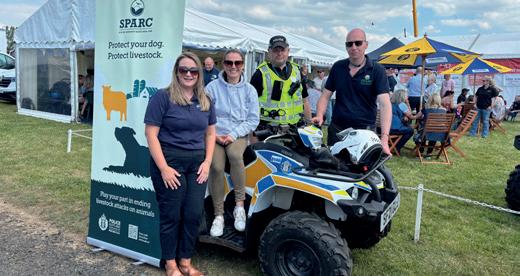


RSABIs fantastic Health Hut team - Mary Anne, Rebecca and nurse Catherine were kept going all day with health checks.
The Digital Dairy Chains Maker Space Co-ordinator Mark was busy demonstrating some of their yoghurt and butter making equipment. For anyone curious about making their own dairy products please reach out to the team for more information.
Thanks again to our affi nity partner ATV Services for providing us with a Can-Am Outlander Pro HD7 XU and to Solway Recycling Ltd for use of their picnic benches.
And of course, to those of you who popped on the stand to say hello and brought the show to life.
Same time next year!
LOTHIAN AND BORDERS




TREGIONAL MANAGER
Lindsay Brown
07780 441 750 lindsay.brown@nfus.org.uk
here are now 19 Partnerships across Scotland. In Lothian and Borders, we have fi veEast Lothian, Midlothian, West Lothian, Pentland Hill and Borders - so the region is well represented. Working with the police, fi re service, councils and other stakeholder organisations provides vital support contacts when trying to get a problem resolved in the region. As Police Scotland recognise the problem of rural crime and its links to Serious and Organised Crime, it raises the profi le of issues being faced be rural businesses and communities.
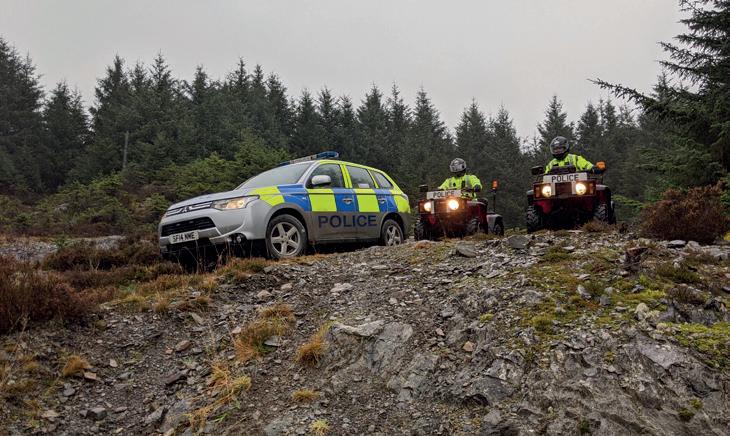
SPARC is the national organisation which oversees the local PARCs and it will be launching their second national Rural Crime Strategy at this year’s Royal Highland Show.
You are encouraged to report any crime incidents to the police, if you don’t want to wait on a 101 call, use the ‘Contact Us’ form on Police Scotland’s website and you will get a call back.





























































































Various styles, bespoke sizes and options, all from locally sourced wood. 01750 725870 Linglie Mill, Selkirk, TD7 5EQ
edinburghtablecompany.co.uk







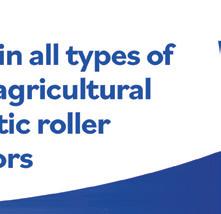

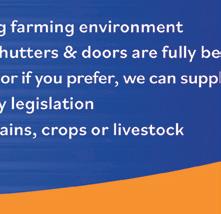













REGIONAL POLICY ADVISOR Lee Smith
07554 741 030 lee.smith@nfus.org.uk
I’m writing this in the middle of lambing in early May and the weather has been on our side, so far! This month, most crofters and farmers have been preparing for lambing, doing some lambing, or in the throes of calving. Life is busy this time of year for sure and while trying to get a lamb to sook you may be contemplating the changes to the agricultural system, thinking about plans for the summer, cutting silage, shearing, thinking about upcoming local shows and the stock you may be entering, or just taking fi ve minutes to relax.
As some of you know, Margaret Farquhar will be leaving us as Group Secretary at the end of June. Margaret will be a huge loss to the Shetland
Branch and we wish her all the best for her retirement with John.
Darren Stewart joined Margaret in August 2023 as an NFU Mutual Agent/ NFUS Branch Secretary and will take over from Margaret at the end of June. Darren is no stranger to the Union, having worked in the offi ce nine year, so he knows the issues, challenges, opportunities and many of the locals well. He has a good understanding of
crofting and can dance his way around a lambing shed I’m sure (or provide the music!). Darren is keen to meet members and engage with potential new members and would like everyone to know he is always available at the local offi ce. He will also be in the Union’s tent at the Cunningsburgh Show and will be present at the Voe and Waas shows along with Lee and other committee members.

NORTH EAST




REGIONAL MANAGER
Lorna Paterson 07786 860 453 lorna.paterson@nfus.org.uk

Dee Don member, Colin Kelman and partner, Joyce met up with Group Secretary, Tommy Brodie a year on after his almost fatal quad bike accident. Colin endured multiple wounds following the overturn of his quad bike on the hill when checking sheep in April 2024. The bike landed on top of Colin, trapping him for about eight hours prior to Joyce returning home from work and sensing his absence. Upon fi nding Colin, Joyce raised the alarm, with Scotland’s Charity Air Ambulance (SCAA) assisting the rescue and Aberdeen Royal Infi rmary then becoming Colin’s home for a wee while thereafter. Colin’s said he wanted to share his experience and said: “For all farmers and shepherds, please ALWAYS wear a full visor helmet when driving your quad. Carry your mobile phone. And hope that your local NFU Mutual Agent/ NFUS Group Secretary and RSABI staff are all as kind, considerate and generous as mine are. Without the latter two, I would not be here today. My partner Joyce is currently undergoing cancer treatment and I am trying to be supportive and repay her for all the care she has given me during my recuperation”.

Local Aberdeenshire Teacher and farmer’s daughter, Chloe Auchnie from Muirden Farm, Aberchirder has invested time, monies and energy creating her “Lambing Experience” brand. Chloe, along with lots of help and support from family members (Duncan, Jill and brother Robert) worked tirelessly to create this event last Spring and invested in a stateof-the-art lambing shed for 2025.
This year, Chloe and her schoolteacher friend, Taylor, along with mother, Jill, hosted over 1200 visitors who adored helping bottle feed the pet lambs and also meeting with Chloe’s new enterprise of Highland cows and calves.
It is great to see young farming folk encourage urban based visitors to their farms in order to educate and inform them of farming life and tasks.

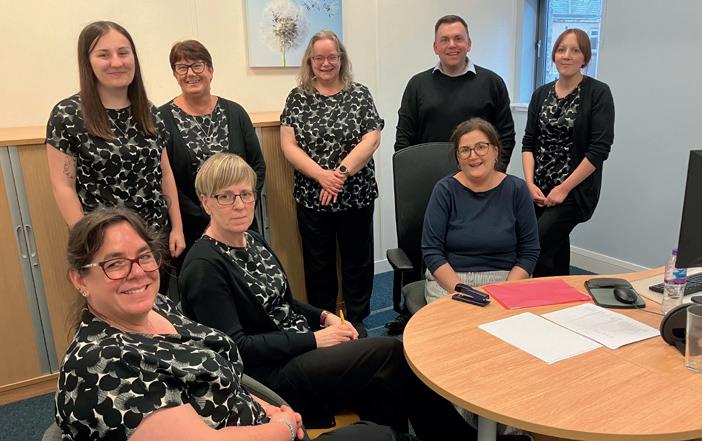
A big thank you to Membership Services Manager Jackie from the North East Group Secretaries and offi ce-based staff for spending two days training with us in late April. Staff learned a lot about NFU Scotland affi nity partnerships, and the great work done by all in Head Offi ce NFUS.
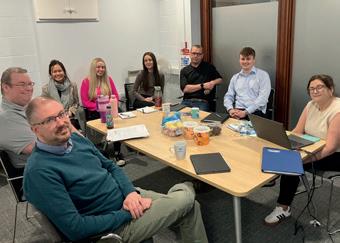




IREGIONAL MANAGER
Ian Wilson
07775 915 988 ian.wilson@nfus.org.uk
am excited to introduce myself as the new Group Secretary for NFU Scotland, serving the Moray, Inverness, Nairn, and Strathspey area. I was appointed to this role in January, bringing with me a wealth of experience from 25 years as a business consultant, working with Small-Medium sized Enterprises and large corporate businesses all over the world to improve their operational performance. Now, I’m applying my skills in a new, locallyfocused role where I can directly
contribute to the farming and wider community here in the north of Scotland. Originally from Staff ordshire, I moved to this beautiful part of Scotland in 2019, drawn here by many years of family holidays. After living in the Cairngorms for nearly four years, we relocated to Forres in 2023. It has been great to explore what the area has to off er, and I’m thrilled to now have the opportunity to work within it.
As a Group Secretary, I’ll be helping our members by organising branch meetings, addressing member queries, and encouraging new members to join. I am new to the industry, and I have a lot to learn, but my aim is to be a supportive resource for all farmers and crofters in the region, ensuring they have the information and assistance they need to thrive.






I’m eager to engage with you all, learn more about your needs and challenges, working together to strengthen our local farming community. I will be at the Nairn, Black Isle and Grantown Shows where I hope to meet as many members as possible and look forward to supporting your eff orts in any way I can.
If you need anything – don’t hesitate to get in touch.
Dave_jones@nfumutual.co.uk mob 07876257078
In the last week of June, Moray, Inverness, Nairn, and Strathspey (MINS) branch under the stewardship of Dave Jones and Lucy Little will be holding a meeting in Laggan at Gaskbeg, courtesy of Euan and Lucy Grant. Attending members will see a very well-run hill farm and hear how Euan and Lucy cope with the challenges of farming in this testing environment. Challenges have increased this year with Sea Eagles circling the lambing fi elds this spring and beavers now in the Spey all adding to issues on farm. Look out for confi rmation of the details and your invites - all welcome.




07919 001 23 kate.maitland@nfus.org.uk
We have just completed a successful round of parliamentarian meetings. These are not all about actions, we aim to increase their knowledge and reiterate the importance the role agriculture plays in the rural economy. We all need to grasp every opportunity to educate those in political power whether its civil servant advisors, local councillors, MSPs or MPs. It was very timely that Perth and Kinross Council and Angus School Meal Menu was questioned by Lauren Houstoun of Glenkilrie Larder. It’s so important that
children are provided with a nutritious and balanced meal with a variety of different options. Children are like sponges with the ability to absorb information, make choices which undoubtably will have a positive impact long-term when it comes to health and wellbeing. NFU Scotland is therefore helping facilitate meetings with all councils within the region, Tayside Contracts who are contracted to provide the meals and Scotland Excel the overarching body.
Royal Highland Education Trust (RHET) also provides a brilliant opportunity to educate our children on where their food comes from. The Trusts activity is very rewarding and I’d like to encourage you to touch base with your local RHET rep and see how you could be involved.
Should you wish to invite an MSP or MP onto farm please do get in touch and we can help facilitate.
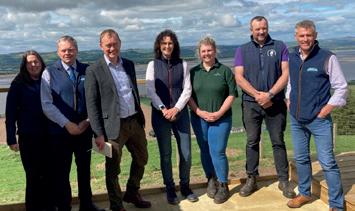
We welcomed the opportunity to meet with Tim Farron MP, Liberal Democrat Spokesperson for Environment, Food and Rural Aff airs and Wendy Chamberlain North-East Fife MP on Andrew and Jojo Morris’s farm, Newburgh Fife recently. We spoke about many key issues including the importance of farmers and crofters to rural communities, the negative impact of the proposed inheritance tax changes and the need for fairness in the supply chain.
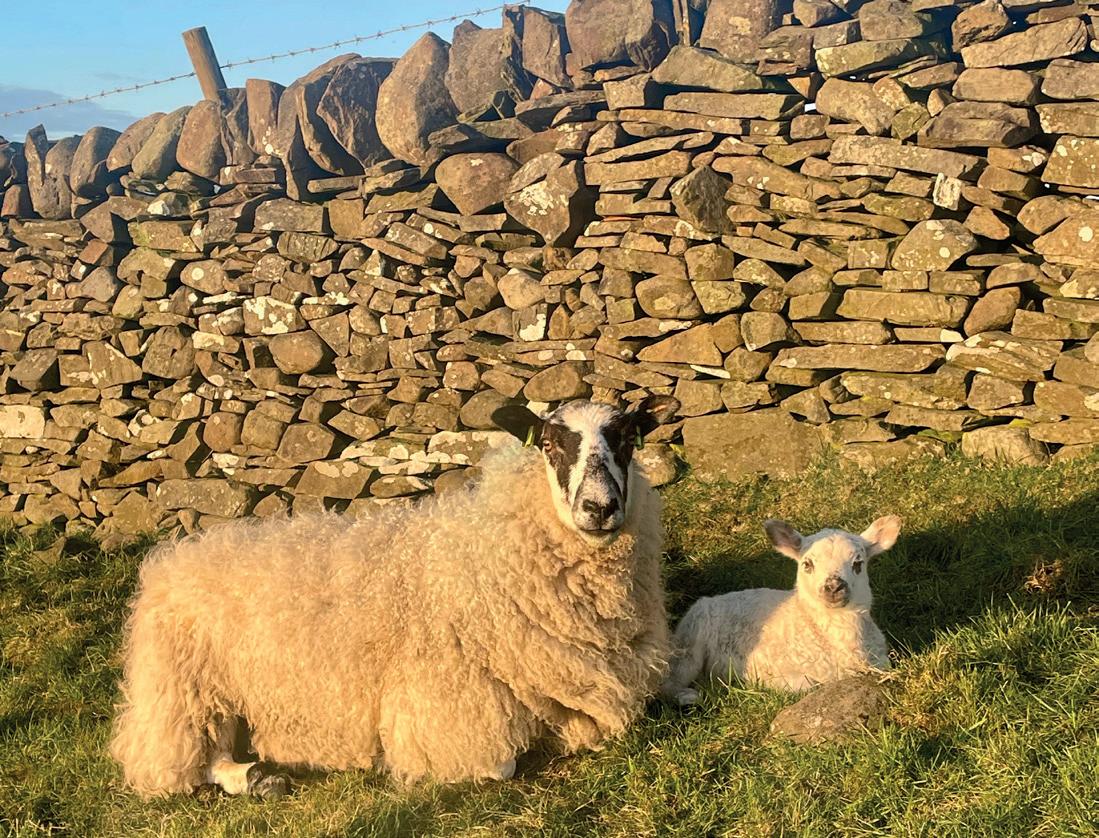
a spring it has been, here’s to summer!
DUMFRIES & GALLOWAY




IREGIONAL MANAGER
Mhairi Dawson
07718 425 053 mhairi.dawson@nfus.org.uk
am sure you are all as grateful as I am for a much easier calving and lambing period, at least weather wise. And when it fi nally heated up, it was good to see the grass catch up. This gave a much-needed mental health
boost to many. We have lots planned across the coming months including farm walks, BBQs and technical meetings – including another ‘What To Expect From Inspections’ Meeting because of such positive feedback from the last ones. There will also be social and recruitment activity at both branch and regional level. We’ll send out branch activity programmes by email so please do make sure your email address is up to date, so you don’t miss out.
We’d love to hear from our younger members and new SAYFC members.
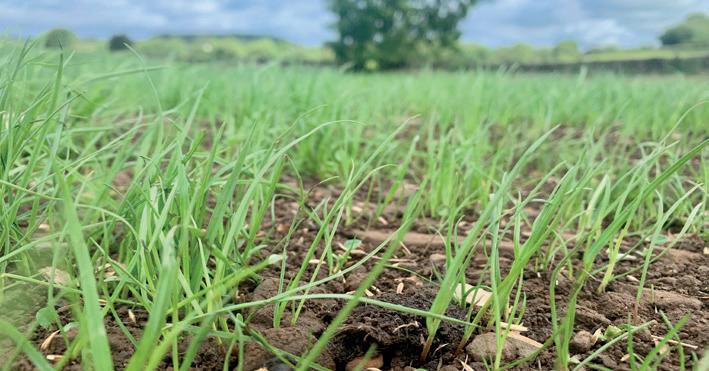
What events can we put on specifi cally for you? Send your wish list to myself or Next Generation rep John McCulloch. The summer shows will be a key feature as usual. I’ll be on the stand on Thursday and Friday at the Royal Highland Show, and myself and the NFU Mutual teams look forward to seeing you at Stranraer, Dumfries and Wigtown Shows. President Andrew Connon will be at Stranraer and Vice-President Robert Neill will be at the other two. We’re looking at how we can support a show in the East of D&G too.
Have you heard of the Voluntary Initiative (VI)?
The VI is an industry led programme promoting the responsible use of plant protection products (PPPs) through an Integrated Pest Management (IPM) based approach. Grass is Scotland’s biggest crop and we are going to take the lead as the grassland champions here in D&G. We will hold an event later in the summer. Read more about the VI at www. voluntaryinitiative.org.uk














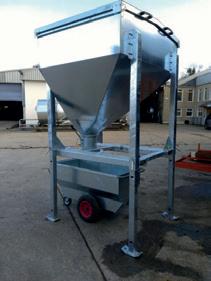














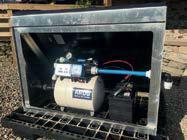
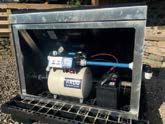























FOR





•










Danny Lewis - 01502 725 862 danny.lewis@micropress.co.uk






•
•
•








•
•
•






• Faecal Egg Counts




•
• Pelvic Measuring

• Embryo Transfer























• Breeding Services (AI&Synchronisation)


























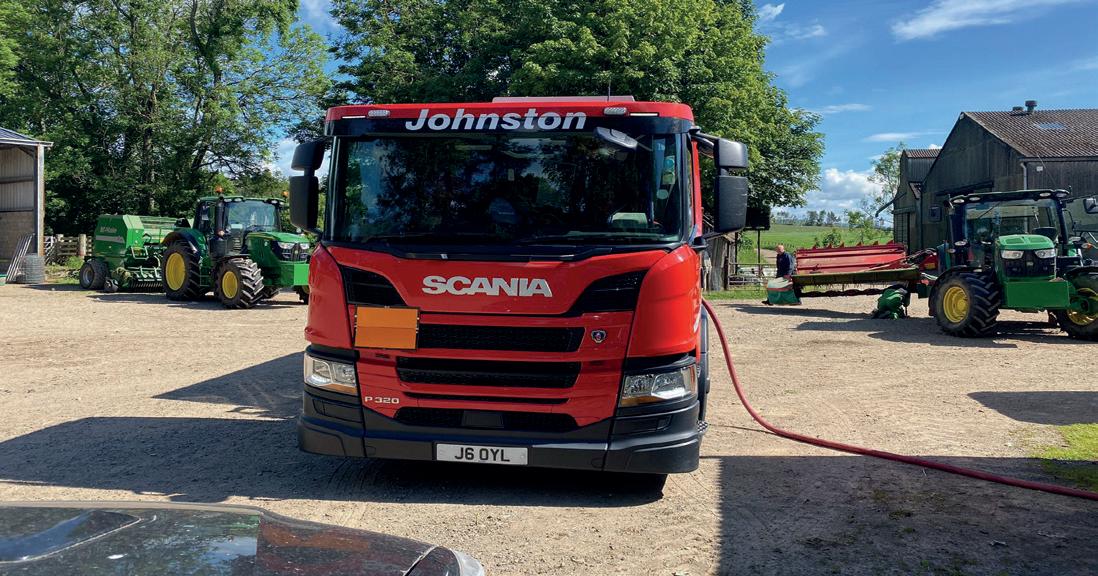

No leaks - even the stretch areas are waterproof.
No need to change boots after workwith wider fitting at toe area, a beefy heel counter and whole cut vamp, this is a waterproof safety boot with gravitas and real substance, which you can wear all day, every day.

No date clock on our soles - B1180s K11 rubber outsole withstands the toughest of conditions, including chemical or fuel spills. Tough, durable yet light weight with ladder grips for vital instep sole bite when climbing on and off machinery.





No struggling with two pull loops - B1180 has three dimensional Buckflex fitting with three flex-stretch areas at the boot collar making fitting and removal a stroll in the park and enabling the collar to retain its neat look and snug fit at all times.

No need to compromise on good looks - using construction and components designed to withstand the roughest treatment, B1180 combines good looks and strength with light weight thanks to dual density outsole construction, super light safety toecap and kevlar nail stop midsole.



See the full range of Buckbootz dealer boots at www.buckbootz.com
To find your nearest Agricultural Merchant stockist call 01382 82 82 00 or email info@buckbootz.com
No worries about qualitywith Buckbootz characteristic attention to detail we lock stitch the toe plate and beef up the outer sole rubber depth at the critical heel and toe ground contact areas.